Summer gear guide
We take a look at essential products for summer





MENTAL HEALTH











How small changes can make a big di erence



Summer gear guide
We take a look at essential products for summer





MENTAL HEALTH











How small changes can make a big di erence


Daisy's blazing a trail with her camel dairy



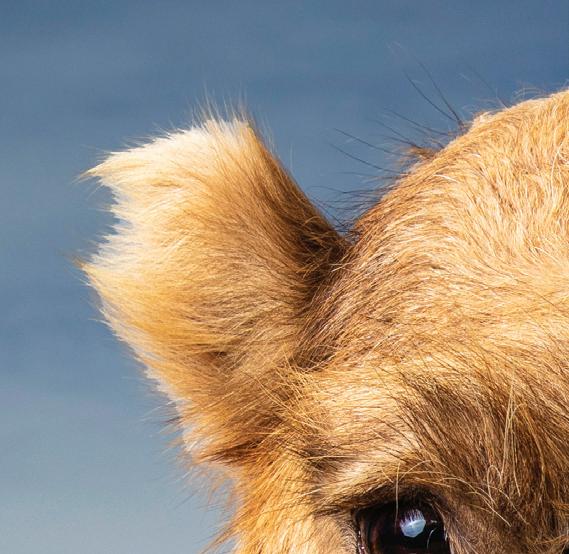

FIRST-GENERATION FARMING
The farmers forging their own paths
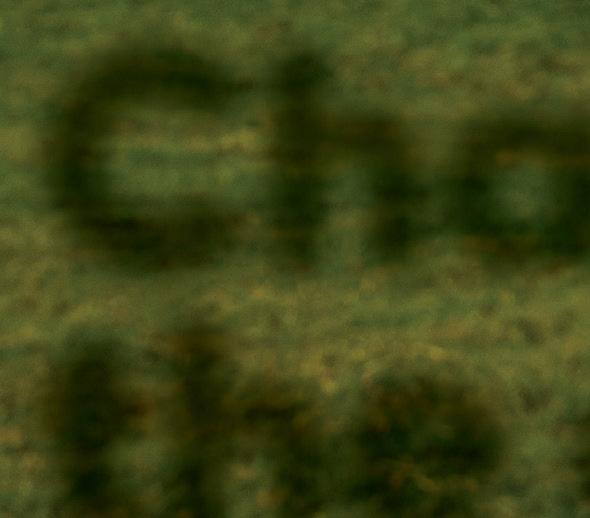
Health and safety
Take the time to ensure your safety
to diversify your farming business
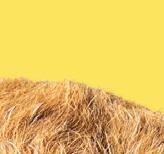
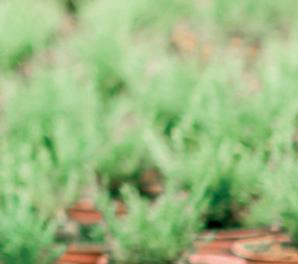

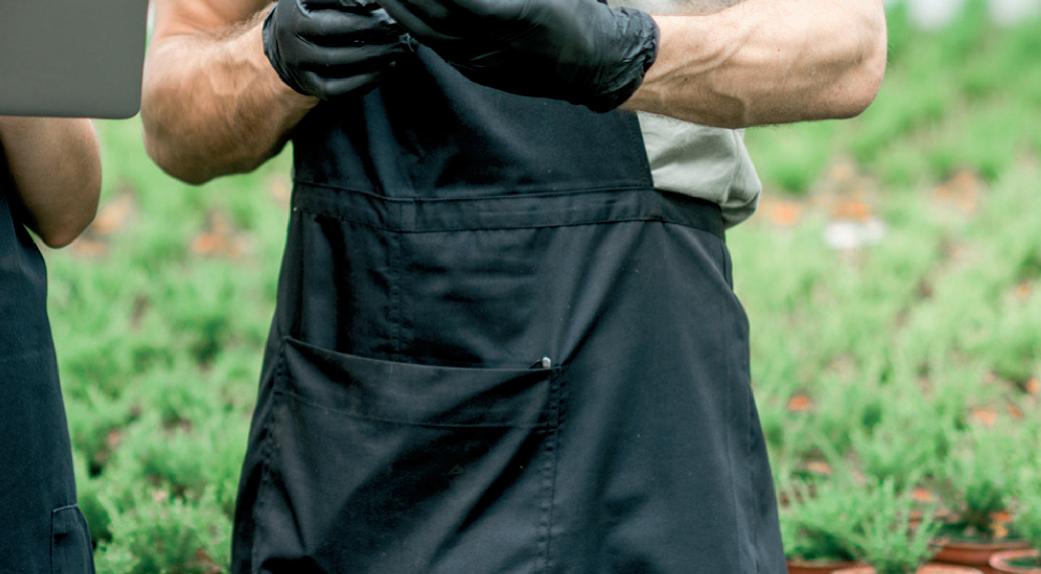
Areyou ahighly motivated problem solver with strong leadership potential? Then youwill relish the challenge of MDS, acareer development programme likenoother
Over 18-24months youwill takeonroles with real responsibility in up to four different companies, whilstalso studying industry specific people management qualifications. This will stretchyou beyond other job opportunities, giving youaccountability from dayone but with the support and training youneed to succeed.



If youthink you’reready, contact us now. Visit www.mds-ltd.co.uk to apply
Followusonsocial media:


















Discovermoreat www.mds-ltd.co.uk

PUBLISHED BY: NFU, Agriculture House, Stoneleigh Park, Stoneleigh, Warwickshire, CV8 2TZ
EDITOR
Beth Wright beth.wright@nfu.org.uk
FILLED WITH WORDS BY: Beth Wright, Molly Chenery, Alexander Payne, Isabella Roberts, Phoebe Traquair, Darcy Johnson, Hannah Cuthbert, Louise Penn, Debbie James, Kate Adams, Tom Sales, and Sophie Bird
DESIGNED BY:

John Cottle
COVER IMAGE BY: John Cottle
TO ADVERTISE, CONTACT: Alan Brown alan.brown@nfu.org.uk

04

08
10 BEHIND
Well, this is my first edition as Editor of Student Farmer. With NFU Publications Editor Jo’s blessing, I’ve taken the lead on this issue and luckily, I’ve been supported by the best team.


So, who am I? I’m Beth and am pretty new to the industry, having been at the NFU for seven months. I’m really enjoying getting stuck in, but it’s talking to young and aspiring farmers like you that gives me the most joy (cringe, but it’s the truth). I never fail to be blown away by how driven, articulate, and confident you guys seem. When I cast my mind back to my own uni days at Leeds (which feels a lot further back than I’d like) I wasn’t half as together as you lot and it’s pretty impressive. I can’t wait to hear more of your stories and my inbox is always open.


This issue highlights some of the more unusual stories and sees us explore diversification ventures and routes into farming that are somewhat out of the ordinary. We chat to Daisy Fossett who has diversified into farming with her camel dairy, Bryn Perry who makes vodka out of sheep milk, and Zoë Colville, who was a hairdresser before taking up the mantle of The Chief Shepherdess. We also shine the spotlight on health and safety, go behind the scenes at NFU Conference, and recommend some small changes that could make a big impact on your mental health.

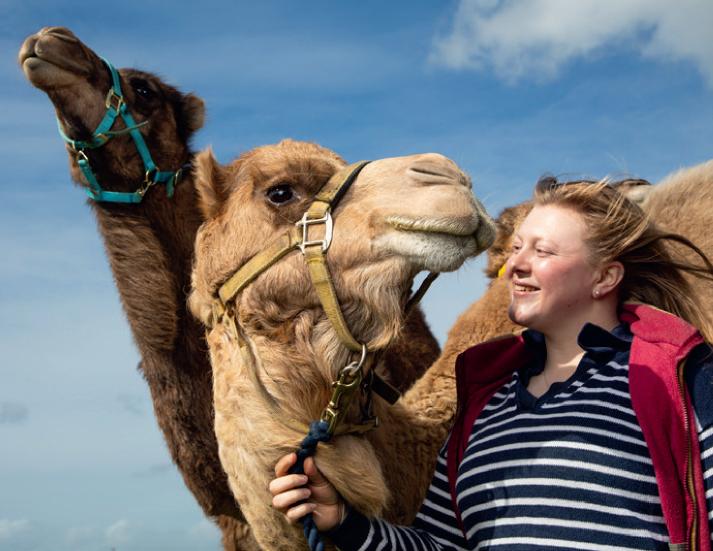
I’ll end by saying thank you for being so supportive to a newbie like me. The industry has probably been the friendliest I’ve had the pleasure to work in and I’m very much looking forward to my own journey into farming!
Beth Wright, Student Farmer Editor
Daisy Fossett tells Beth Wright how she manages the UK’s frst camel dairy and why asking for help with any diversifcation project is key
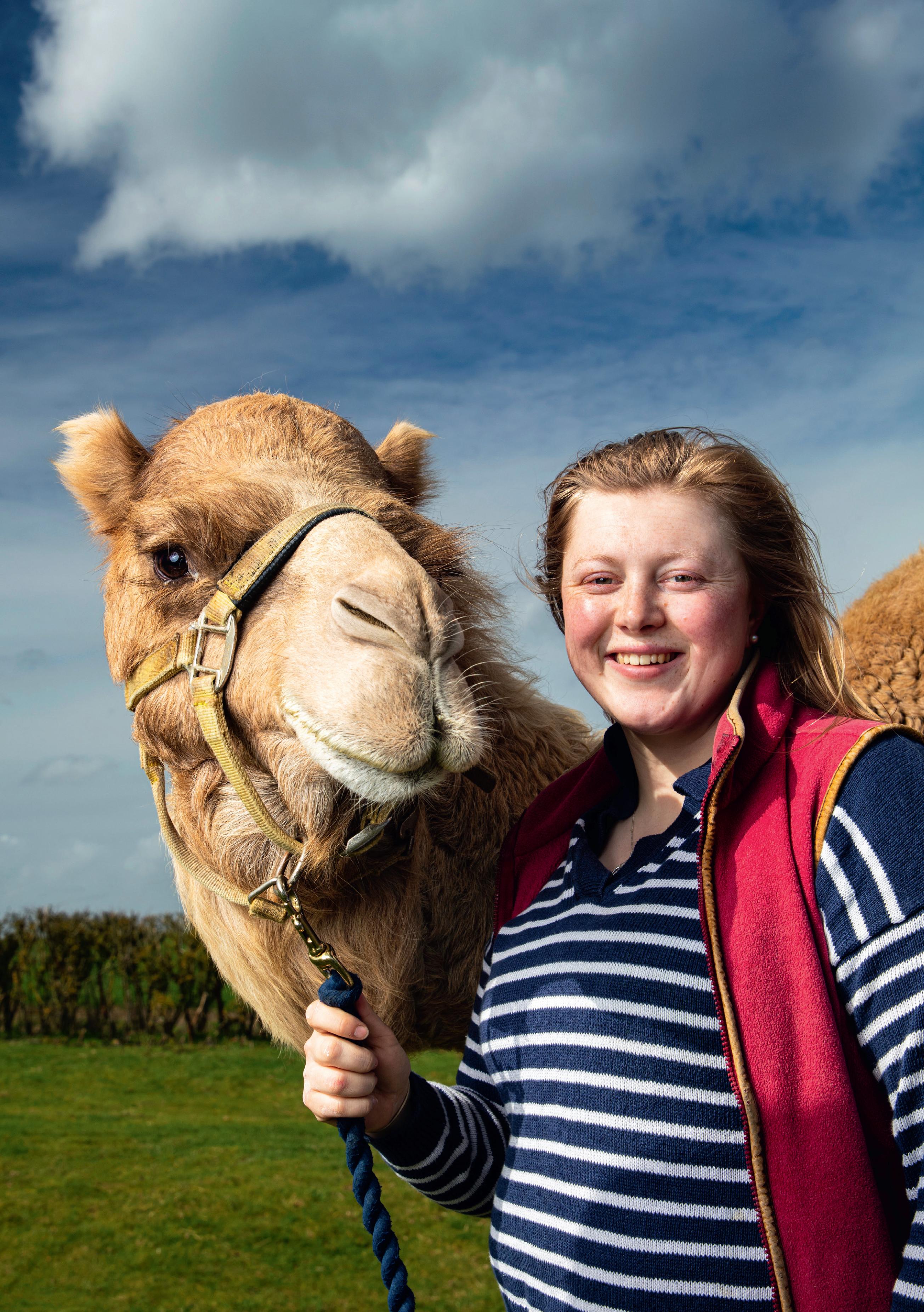
Acamel dairy. It’s not the most obvious choice when you might think about a career in farming, but it’s just what Daisy Fossett is championing in Shipston-on-Stour, Warwickshire. The 24-year-old launched the UK’s frst camel dairy in 2021 alongside her family, diversifying out of the entertainment sector and into farming.
“It’s the exact opposite of what most people in farming are looking to do when it comes to diversifcation,” Daisy told Student Farmer.
The move to milking camels, which she added had been on the cards for at least ten years, was fnally sparked by the Covid pandemic when the entertainment side of her parents’ business, Joseph’s Amazing Camels, was forced to grind to a halt.
“We always knew we would have to diversify in some way, and we always wanted to,” she explained. “You have to move with the times in order to survive as a business, no matter what it is. This is why all farmers are diversifying. The only diference is we’ve gone into farming whereas farmers go out of farming.” Camels!?
The business was started by Daisy’s parents, whose eyes met over a bucket of meat. Literally.
“My dad is part of one of the oldest circus families in the world and grew up in the circus. He was a lion tamer, among
other things. Mom decided to get a job as a wild animal presenter in the circus and that’s how they met: over a bucket of meat she passed to him to feed the lions.”
When the couple realised Daisy was on the way, they started Joseph’s Amazing Camels, ofering camel racing and hire across the UK. Daisy, who now runs Daisy’s Dromedairy Ltd as creative director, said she didn’t originally plan to get into farming, but the camels stole her heart.


“I always wanted to do something with the camels, I knew that that was my thing. But as any young farmer will tell you, it’s very hard to work with your parents, no matter who they are. It’s not an easy decision. I worked for them full-time when I was 18 and then I went travelling and to uni, but the camels were always in the back of my mind. I was always going to be drawn back to them in some shape or form, I just didn’t know how.”
The dairy started with the purchase of three pregnant milking camels from Germany and now sees Daisy ofering raw camel milk, chocolates and soap made with camel milk. She explained camel’s milk has a number of medicinal benefts, adding: “It’s an amazing superfood with a lot of benefts in that many other milks don’t have.”
But it’s not been an easy ride. “I don’t think any of us knew what we were getting
ourselves into,” Daisy said, adding that with those frst three pregnant camels “everything that could have gone wrong, did”. The issues ranged from a delayed milking machine to an early frst birth and huge calf who couldn’t lift his head up, let alone stand and suckle.
“We had to milk his mom and then bottle feed him and check on him every hour for about 12 hours before teaching him how to suckle. This whole ordeal took place over a week, and as soon as that one was fne, the next one popped out.”
And learning to milk the camels was a task in itself.
“They aren’t like cows,” Daisy said. “Milking itself is not easy. Camels are very emotional, they really have to trust you.”
She added: “It’s been a journey. Every pitfall, we’ve fallen into it, we’ve been there, and we’ve done it.
“It’s not been easy but we’ll keep going. I think that’s how general farming works!”
Help from friends with dairy farms has been invaluable.
“Our dairy farm friends have been our absolute heroes. They’ve come out and shown us things like how to even turn the machine on because it’s not simple. If you’ve never seen a portable milking machine, you wouldn’t have the frst clue how it works. It’s been a lot of trial and error, but slowly we’ve come up with our own way of doing things and what works for us.”
Daisy’s Dromedairy currently has four milking camels which are milked once a day – a process that takes about 45 minutes.
“It’s not been easy but we’ll keep going. I think that’s how general farming works!”
This is in addition to a further 14 camels which make up the family’s herd across their 30 acres, on which they also house a number of ‘racing pigs’, a couple of donkeys, a horse and make their own hay.
“Camels produce about 10 litres of milk a day and we get, depending on where they are in their cycle, between one and three litres from each camel, so it’s not a huge amount. The calves get the rest of it and are really healthy and very happy, which is the way I want to keep it.”
When the camels aren’t being used for milking, Daisy explained they like to be kept busy.


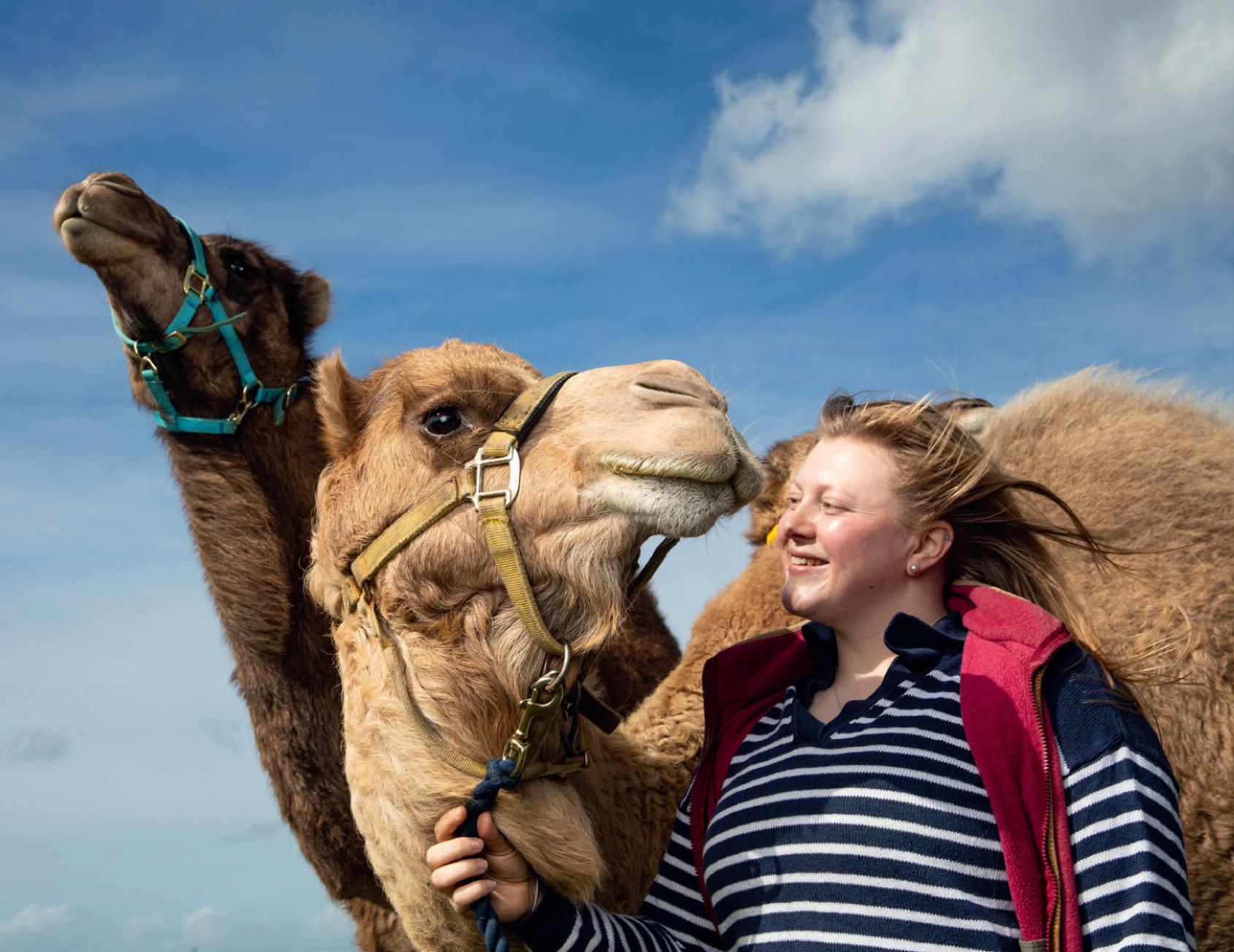
“They milk for about two years, or as long as they’re happy to, and then they’re dried off for around six months to let their bodies recover. We have one camel currently that is drying off so we might take her racing so she’s not bored. The thing with camels is they’re so intelligent, they need a job and not to be in a field for six months. They go a bit stir crazy.”
Ideally, Daisy explained, the business would have three camel herds: “You need the milking herd, the dried off herd, and
the pregnant herd to help keep the whole thing going.”
She’s also keen to improve camels’ reputation among the general public.
“They have an awful reputation. So many people ask if they spit or bite. I always compare it to dogs, if you treat them badly, they’ll act badly. They’re gentle giants and when you look after them, they’re really lovely. When they greet one another they’ll touch each other’s noses to say hi, and they do that now with us too.”
Walk on the wild side?
But despite their sweet nature (which Ed Beth can firmly attest to), Daisy was careful to stress how important it is to do your homework if you’re mulling over the idea of diversifying into unusual animals.
“Do your research,” she said firmly. “Spend time with those animals if you can and learn about them before you
go into something like this because, no matter if it’s camels or snakes, whatever it is, you need to know how to look after them because otherwise you will run into problems. Talk to people, talk to us, ask us questions. We will advise you the best we can.”

And it’s the same story for anyone looking to diversify on a less unusual scale.
“Go to as many people as you can and just ask questions,” Daisy reiterated. “We’ve been so lucky that, because we live in a farming area, we have so many friends who are dairy farmers. That’s number one.
“It is really scary, it’s terrifying going into the unknown but just go for it. You are going to come across failure, and you are going to cry, but you will find your way.”
For Daisy’s camels’ raw milk, chocolate boxes and soap, contact @jacamels on Instagram or visit www.jacamels.co.uk for details.
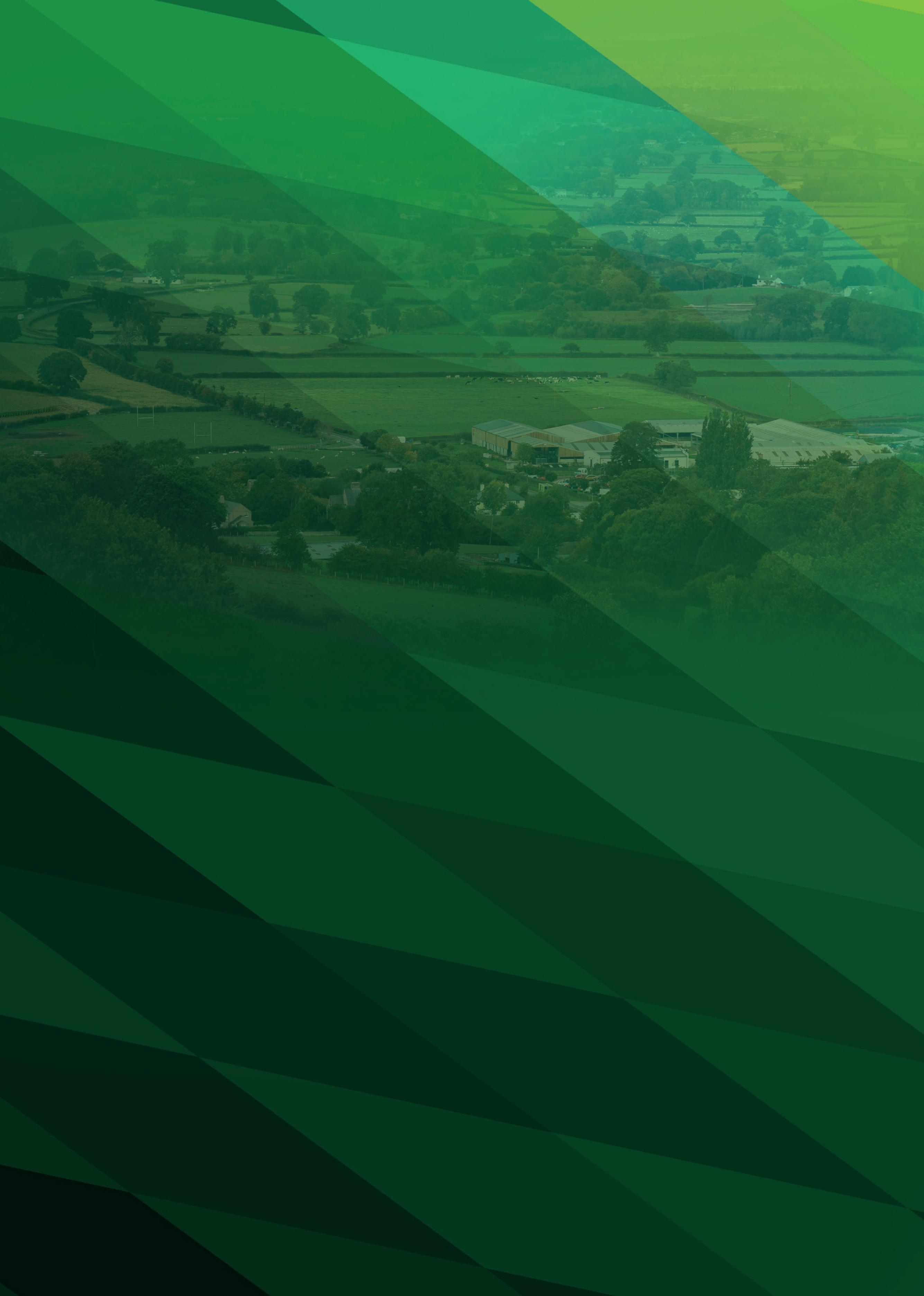



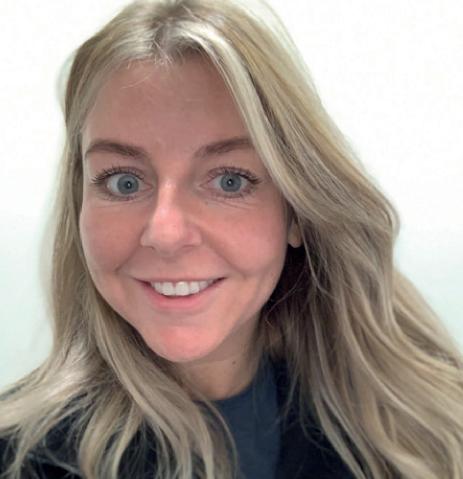
Change the use of agricultural buildings and rent them out to third parties.
Ofer visitors or ‘doggy daycare’ businesses exclusive use of safe felds.
You're making milk, why not take the next step and try your hand at cheese production?
Consider setting up a camping/glamping site on your land.
Hosting experience days can be proftable and enjoyable if you have a particular passion or skill.
Decrease long-term costs by selling your produce through farm shops, cafes, delivery services, farm butcheries, ‘pick your own’ and more.
Sophie Bird's top tips for diversifying your farm business
While these events are time-limited and seasonal, they could be particularly lucrative within a short space of time.
Having charging points can be an income opportunity but it can also be efective at attracting customers to your farm shop and other innovations on farm.
Consider renting your land out for corporate training and team-building days.
Whether you install solar panels on barn roofs or a wind turbine in a feld, generating clean and sustainable energy can help secure a long-term fxed income.

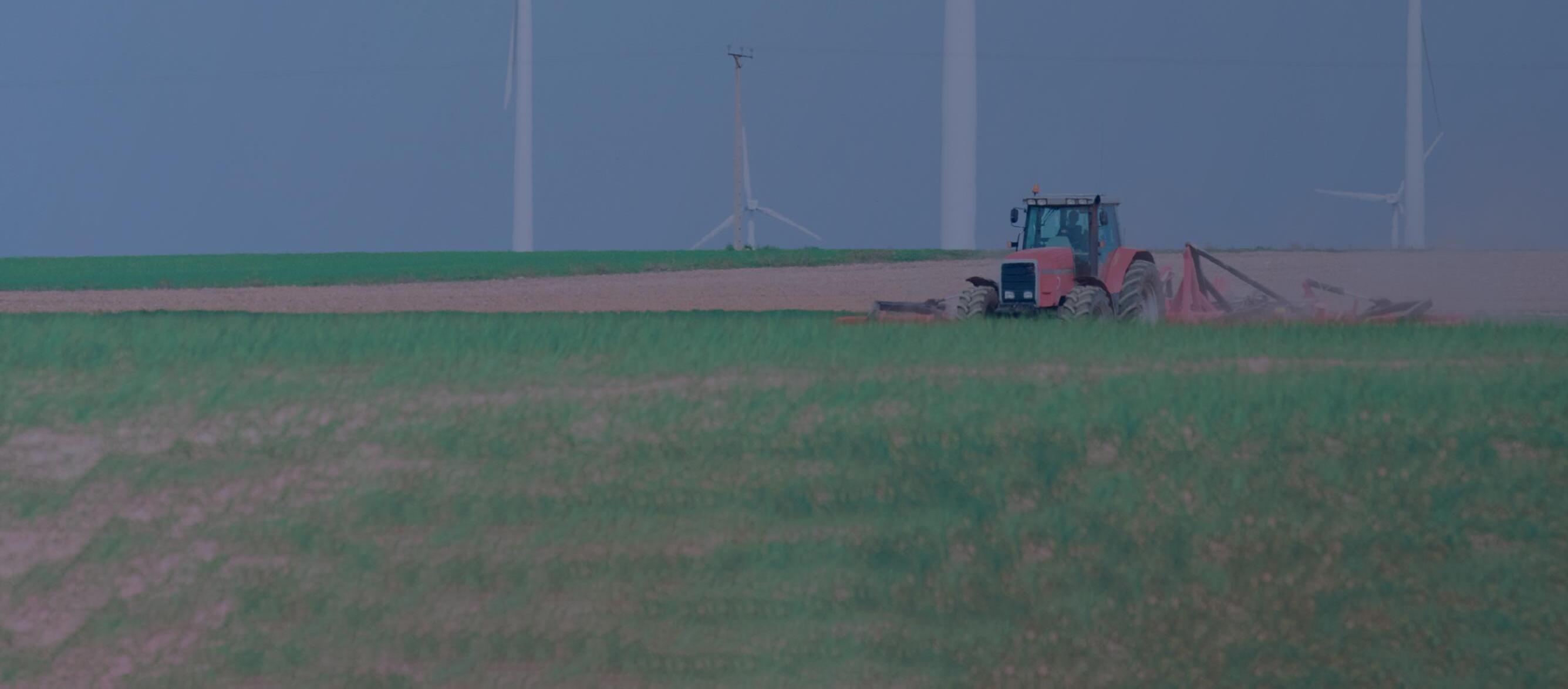




NFU Student & Young Farmer Ambassadors were among the attendees at the NFU Conference 2023 in Birmingham. We get their thoughts on the new sector resilience plans and go behind the scenes at NFU23.

Our Student & Young Farmer Ambassadors were on the ground at Birmingham’s ICC on 21-22 February, acting as roving reporters at their first in-person event, NFU Conference, which this year explored the theme ‘Feeding a Changing World’.

And, it’s safe to say, the ambassadors had a very packed schedule.
The first day of Conference started with networking with old cohorts of Student & Young Farmer Ambassadors to create vital links, ask questions about the programme and learn about others’ experiences. This was swiftly followed by NFU President Minette Batters’ opening address and a short video message from Prime Minister Rishi Sunak.

As part of day one, the ambassadors

had the opportunity to sit down with Defra Minister for Farming, Mark Spencer MP (Cons, Sherwood), to speak about the farming industry and the younger generation. Questions from the ambassadors mainly focused on ELMs, the future of environmental farming, and the Farming Equipment Technology Fund, and how it is not always helpful to new entrants as you need to make the upfront payments yourself.
They then returned to the main conference for Labour Party leader Sir Keir Starmer’s address and a session titled ‘Food Security in a Changing World’.

Following this, the ambassadors also had the chance to sit down with Shadow Defra Minister for Farming, Daniel Zeichner MP (Lab, Cambridge). He provided some insight into his background and
how he become Shadow Minister and the conversation also centred around ambitions to be net zero and Labour’s food security aims.
Commodity sessions were the final thing on day one’s agenda and the ambassadors split into sector-specific groups to attend these.
Day two, meanwhile, kicked off with a session on ‘Building Business Resilience’ followed by a final political address from Secretary of State at the Department for Environment, Food and Rural Affairs, Thérèse Coffey MP.
Later that morning the ambassadors attended the launch of the NFU’s sector resilience plans (more of that later), before attending a panel featuring five different types of farmers discussing climate-friendly farming.



1,453 people attended Conference on day one
1,266 people attended Conference on day two
6 the number of national newspapers that had the NFU on their front pages
£14,250 was raised for FCN during the Conference dinner (our highest prize draw total at the Conference dinner yet!)
£635 was also raised for NHS Charities Together by selling o the table centre baskets
1,160 steak fillets were served during dinner
880 bottles of beer were served during the drinks reception
Launched at NFU Conference and developed by the sector boards, the new sector resilience plans map out NFU priorities and asks of government to support climate-friendly UK agriculture and improve business resilience. The aim is to ensure that our industry can continue to provide high-quality, climate-friendly and a ordable food, energy and fibre.
Extreme weather events increasingly a ect the way we farm, as do soaring energy prices, the war in Ukraine, fertiliser and feed costs, and general inflation. These challenges underline the need to build resilience into our agri-food supply chains. Ultimately, we need to ensure that our industry can continue to provide high quality, climate-friendly and a ordable food.
The new resilience plans set out in one place what could be achieved based on what we are asking government to do for farmers and growers. Each sector is defining its own priorities, highlighting the member benefits and associated challenges, alongside the support needed from government, industry, and R&D for increased uptake of climate-friendly farming practices. Climate-friendly farming is good for business; it can help members achieve better market access, cost reductions, business resilience and consumer approval, all while reducing greenhouse gas emissions.
We chatted to some of the Student & Young Farmer Ambassadors to get their take on the sector priorities and how they think these will help agriculture reach its 2040 net zero ambition...
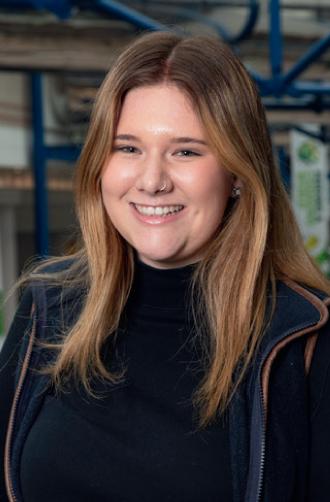

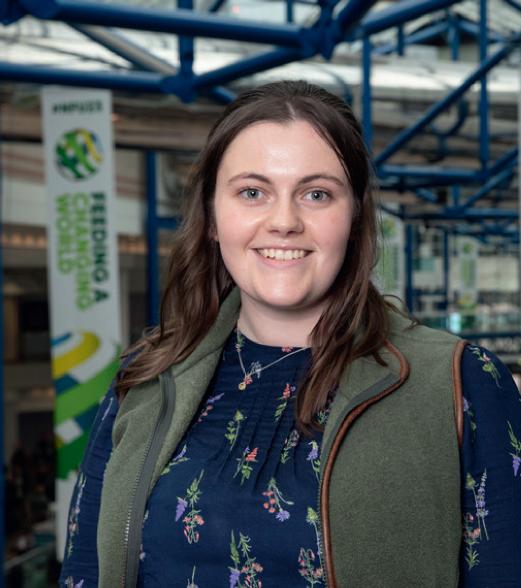

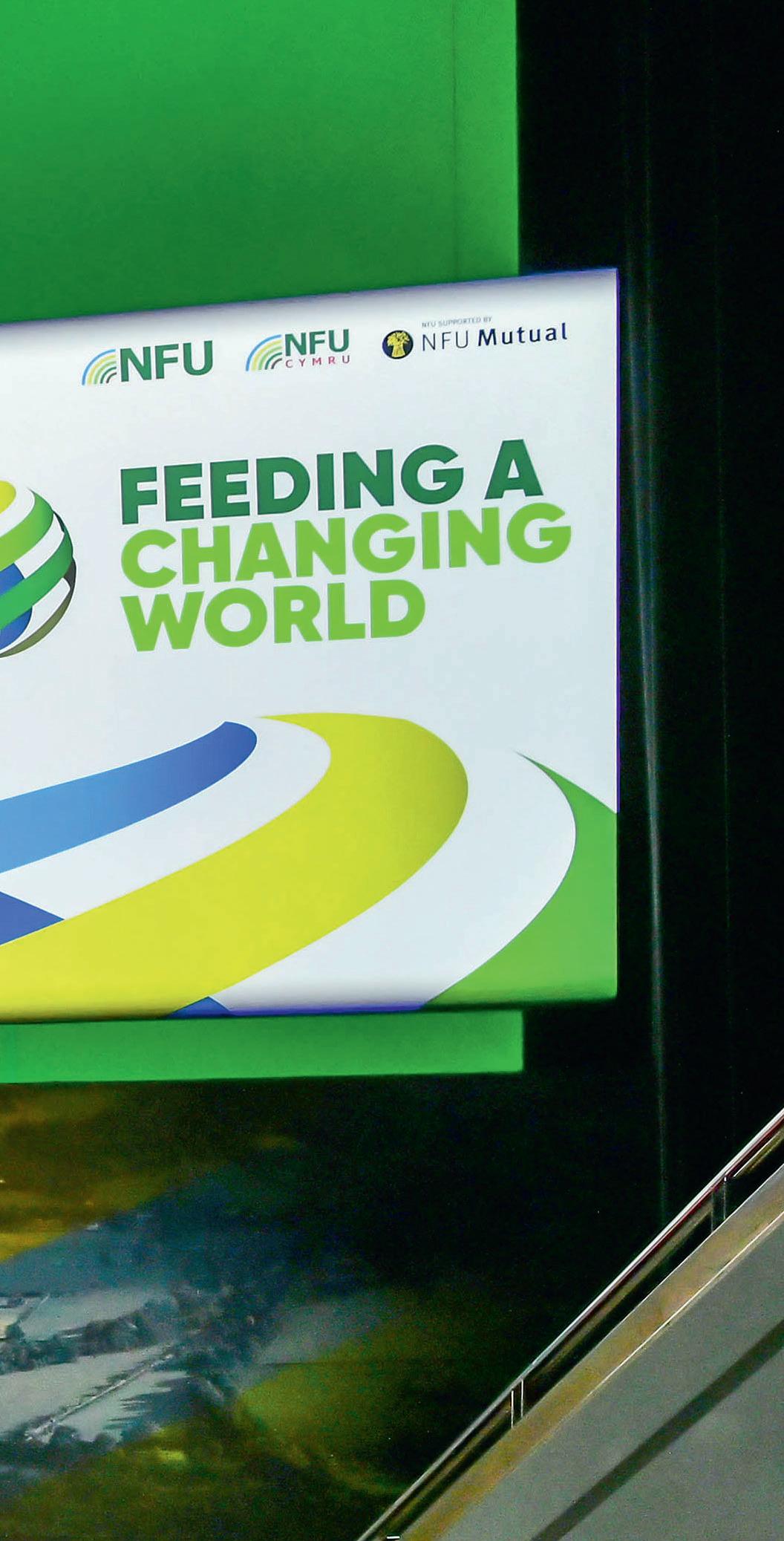
The plans help to pick apart what changes can be made to everyday farming practices while identifying the challenges farmers might face, and I think it is reassuring to see that the NFU has created well-rounded plans to also identify the support farmers will need to deliver net zero by 2040. It is crucial that farmers can continue to produce high-quality, high-welfare produce, and I think the sector resilience plans are a great start to our journey to net zero.
The poultry sector's five-year resilience plan to adhere to the necessity of high-quality, climate-friendly, a ordable poultry meat for consumers involves the sourcing of alternatives for soya in feed, by either sourcing assured lowcarbon soya or exploring more novel proteins for poultry feed. Improvements in resource e ciency, I believe, will also be an important factor to keep production costs tight in this time of extortionate inflation and market volatility.
There is a lot of emphasis on the future of farming, with new methods and farm practices such as carbon sequestration, and as farmers we need to be thinking about the long term aims of our industry. Despite the huge challenges all farmers are currently up against, these sector plans show that there are forward-thinking people in agriculture driving progress forward.
The poultry sector resilience plan is thorough and echoes the many challenges facing the pig sector around hitting net zero. I think it’s key that all stakeholders in the supply chain work together to lobby government, especially around vDCF soya and the consistency of carbon calculators.
The crops sector resilience plan has highlighted some really important points. I do think inflation and rising inputs costs is one of the biggest worries at the moment. Regenerative systems are going to be the single biggest thing that achieve climate-friendly farming on farm. However, this needs to be supported by developing markets that provide added-value for adopting these systems.
With the commitment to net zero by 2040, it’s great to see how livestock farmers can be more e cient in reducing their carbon output, and increasing carbon sequestration, whilst also improving productivity on farm. The focus on EBVs and genetics is particularly important to achieve this and I am excited to see how the industry can adopt these changes.


The dairy sector's plan is shifting a focus to supporting the remaining 40% of farmers who have not conducted a GHG audit; providing members with a greater understanding of what carbon in agriculture is and how they can improve on-farm e ciency and, in turn, reduce on-farm emissions. The NFU is at the forefront of driving change for all the sectors – and the release of the sector resilience plans nurture the bright future of agriculture.
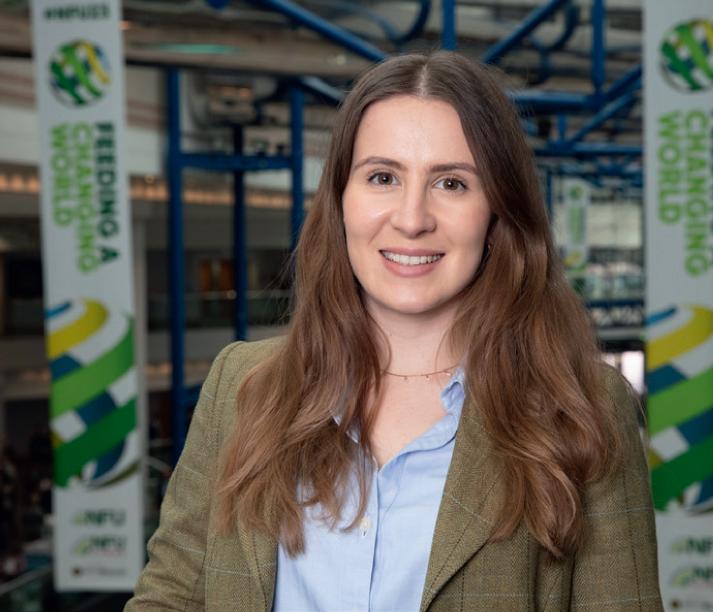



As our industry faces such a vast array of challenges, seemingly all in tandem, it’s great to see the NFU o ering such clear and concise action plans to help farming businesses navigate the changing landscape. I feel that it’s imperative that as farmers we continue to innovate and take the lead in tackling these issues head on.
The livestock sector resilience plan shows a focus for farms to help support working towards climate-friendly farming and business resilience, through resource use e ciency, carbon storage and renewables. Overall, this plan should push the industry in the right direction together, highlighting the barriers and opportunities available to businesses.
I thought they were positive overall. The focus seems to be on large scale commercial farms who have all been hit hard by global shock and supply chain issues. I would like to see more focus on the role of regenerative farming, small scale growing, access to land, localised food systems, greater diversity of people working on the land, and young people as leaders in the regeneration movement.

Asking for further support for farmers in terms of infrastructure and technology improvement will enable farmers to increase e ciency, which should, in turn, reduce on-farm costs and will help provide a database for farmers to use and continue to make improvements year on year. This will help make improvements to infrastructure and technology through on-farm investment.
To read more about your sector plan please visit nfuonline.com/SRP/ or scan the QR code.


















For frst-generation farmer Bryn Perry, a passion for agriculture pushed him to take a leap of faith and to apply for a council farm tenancy. Farming Wales reporter Debbie James visited Bryn to hear what happened next.
Bryn Perry had no experience of milking dairy sheep before he established his own fock in Pembrokeshire, but no learning curve is too steep when fuelled by ambition.
In less than two years, Bryn has doubled ewe numbers, is processing his own milk, and is on a mission to grow producer numbers in Wales.
As a frst-generation farmer, it was a county council tenancy that provided his route into the sector.
He had a degree in business management and experience of working in diferent industries and roles, but he saw his future in agriculture, and ultimately to have his own farming enterprise.
The frst of those ambitions was achieved when he secured a job as a herdsman on a dairy farm in Pembrokeshire.
Bryn had found his calling – he quickly realised that he loved working with livestock, and everything involved in producing milk.
“The family I worked for taught me a huge amount, I gained invaluable experience of dairying and managing livestock. Their support and encouragement really inspired me.”
As he looked to the future, fnance was a limiting factor to establishing his own herd because of the capital-intensive requirements of dairying, but by shifting his focus to a diferent species – dairy sheep – the prospect became a realistic one. “The infrastructure requirement wasn’t huge and it only needed a small area of land,” he explained.
“I could see how I could make dairying with sheep work and how to make money from it by adding value to the milk.”
Armed with confdence and knowledge gained as a member of the NFU Cymru Next Generation Group and a Farming Connect ‘business bootcamp’ and its Agri Academy, he set about making his dream a reality by applying for the tenancy of a Pembrokeshire County Council farm at Welsh Hook, near Haverfordwest.
“It was only 35 acres but was perfect for what I needed to get my foot on the ladder,” said Bryn.
He moved to Wernllwyd with his partner Becca Morris in early 2021; she was his initial link to Pembrokeshire, as she had grown up in Moylegrove where her family still lives.

The couple got to work, investing £60,000 in a
12-point rapid exit parlour and other infrastructure, and 67 East Friesian ewes and 50 lambs from a dispersal sale in High Wycombe.
Fast forward two years and the fock now numbers 120 ewes, the maximum the farm can carry.
The ewes produce a daily milk yield average of 1-1.5 litres at 5% butterfat and 5% protein from a 180-day lactation, with just a small amount of concentrates fed in the parlour.
He doesn’t sell to a processor, he uses every drop to produce cheeses and for a whey-based vodka, products he developed at Food Centre Wales.
The milk is frozen and transported to Horeb where Bryn makes products, while the Ewenique Spirits vodka, made from the whey by-product of the cheesemaking process, is made at a distillery based in Ceredigion.

Sales there are strengthening – Bryn is now producing batch three – but, as with any new or innovative product, getting people to try it is the biggest challenge.
“The connotations of whey and vodka is a stumbling block for some people, they think it is going to taste like cheese, but it defnitely doesn’t,” he said. “It has a creamy richness and a zesty aftertaste, we don’t add any favourings, it is a completely natural product.”
For any young farmers looking to diversify their business, Bryn suggested getting out on farm and visiting di erent people. “Use that time to think of how you can make your farm better,” he said.
“Give it a try, you’ve just got to get on with it sometimes,” he added. “If it makes sense to you on paper, and to everyone involved in the business, then give it a go.”
Until now sales have been in 70 centilitre (cl) bottles, but a 35cl version is being launched this year. It is a premium product so introducing a smaller bottle is intended to widen its appeal in the gift market.
The market for sheep milk and the products made from it is one that is growing, appealing to those who can’t tolerate the lactose in cow’s milk and to people who want to buy locallyproduced sustainable foods.
Bryn would like to grow his business to capitalise on that, but currently there are no opportunities in the county council system to take on a bigger holding, while the value of farmland is an obstacle to buying.
“I’d like to find a bigger place to expand the flock and keep growing, but it is a challenge in terms of finance and farmland value,” he said.
“The farmland market at the moment is mad but I have the support of a bank that has said that it wants to try to help if we found somewhere.
“I am always on the lookout for opportunities and potential partnerships to expand our business.”

The tenancy for Wernllwyd is for six years – Bryn admitted that without the county council system new entrants like him would struggle to get a foothold in agriculture.
“I am very grateful of that tenancy,” he said.

As well as sheep, the couple have 17 alpacas who generate a secondary income for the business; their wool is used for producing socks.
Looking to the future, one of his aims is to establish the first-ever sheep dairy cooperative in Wales, which would enable expansion and an upscale in production, while also providing a viable, sustainable option for small family farms to earn a living.

“I hate the idea of milk leaving Wales, but without the processing capacity that is happening, even though there are a lot of people interested in sheep dairying in Wales.
“We want to see those facilities put in place; it will take investment from someone to do that.”
Bryn is pleased the Welsh Government is taking an active interest in sheep dairying in Wales.
“They are already working on how they can support industry including ensuring future grants work for future on-farm investment.”
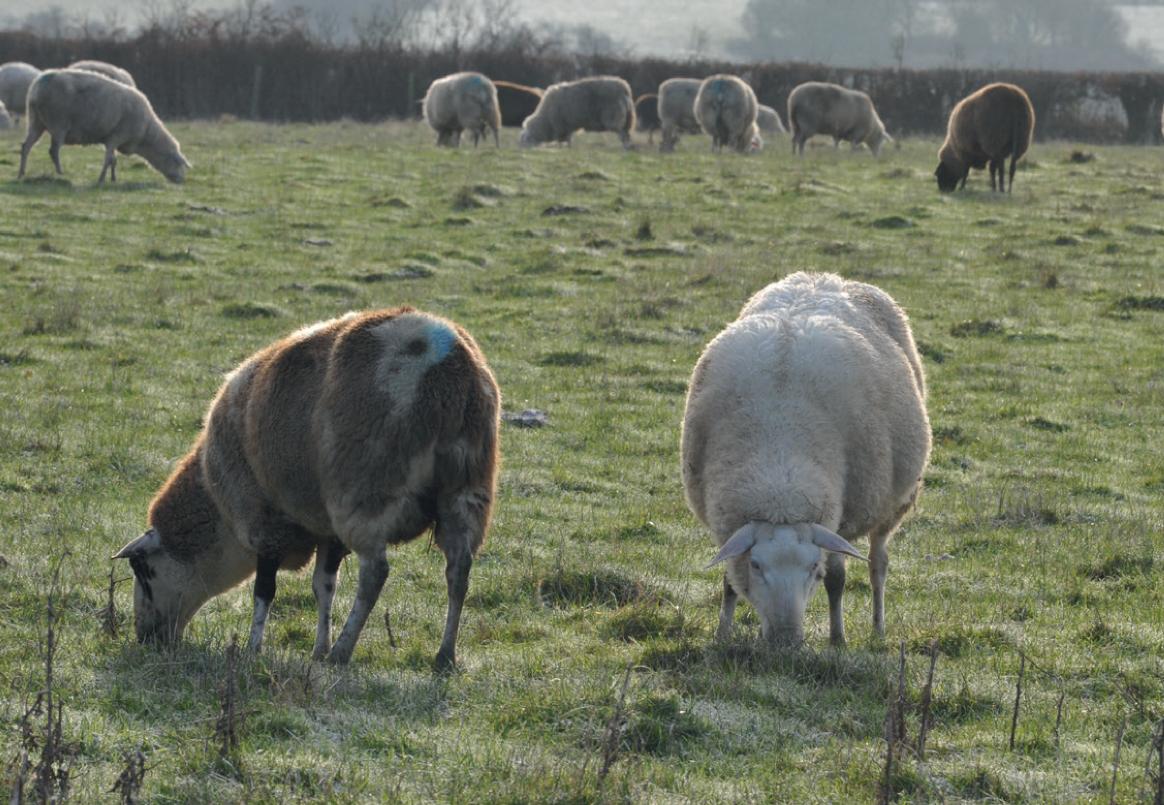


Forover20years Br it ishWoolhas prov ided four stages of shearing cert ifcatesenablingUKshearers to safely andeffectively shearB ritish wool.
Prov idinganexclusive training offertothe youngfarmermovement to help encouragemoreyoung farmersintothe feld.
Silver to Plat inum coursesinshear ingand wool handling arenow accredited by Highfeld –aglobal leader in work-based andapprenticeship qualifcations.

Workinginpartnership with keystakeholders
supporting theUKshear ingsector.
To fndout more call us on 01274688666 or emailshear ing@britishwool.org.uk br it ishwool.org.uk
Together we’regrowing somethingspecial.


We take a look at the best way to utilise sheep milk vodka, with a little help from Bryn Perry of Ewenique Spirits
Assuming you're content living of ramen, pesto pasta bake, and beans on toast until our next edition of Student Farmer and our Don't Get Scurvy feature, we thought we'd ask Bryn what his go-to cocktail is. His drink of choice is the Ewe Espresso Martini which utilises his Ewe Whey Vodka. As always... please drink responsibly!
You will need
25ml Ewe Whey Vodka
25ml Cofee Liqueur
Espresso Shot
5ml Vanilla Syrup
Cofee Bean Garnish
Method
Under 18?
Try without the vodka for a tasty iced espresso
1. Add the vodka, cofee liqueur and syrup to a shaker
2. Top with ice
3. Pour in the espresso shot and shake
4. Double strain into a cocktail glass
5. Garnish with cofee beans
Agriculture student Charlie Rogers discusses his journey into farming with NFU Communications Graduate Alexander Payne and shares his advice for those new to the industry
Alot of young farmers inherit their occupation from their families, with farms passing through the generations, but an increasing number are forging their own paths and breaking into the industry as frst-generation farmers. Charlie Rogers is among them. His parents aren’t farmers. His mum is a stay-at-homemother, and his father rides a desk, not a tractor.
Charlie, who is from Epping, Essex, has wanted to get into farming since he was a foot tall, despite his family having nothing to do with the industry other than having a garden at home. He credits visits to a family friend who manages a farm near Chipping Norton with getting him hooked on the idea and passing on his old copies of Farmers Weekly
“I would encourage anyone interested in farming, no matter what their background, to follow their interests and pursue a career in agriculture,” he said. “I was welcomed into the culture with open arms and everyone I have met so far has been keen for me to develop my skills and encourage others to take an interest in the industry.
“Individuals from diferent backgrounds can provide diferent skills and knowledge to make the industry more diverse and, in most cases, more sustainable.”
Charlie, 18, is now in his frst year at the Royal Agricultural University (RAU) studying Applied Farm Management, which he said has so far included an in-depth look into crop production science and livestock science. The three-year course also includes a practical work placement in the second year and elective modules, which Charlie noted will allow him to customise his studies to suit the direction in which he hopes his future career will take.
What’s more, Charlie has recently been awarded the John Innes Foundation Bursary, which supports young people starting their farm management and crop production careers. The annual bursary is aimed at encouraging young people from a non-farming background into the industry.
After spotting the application for the
bursary over his Christmas break, and with some encouragement from his mum to apply, Charlie wrote his application.
“The bursary application process involved writing a short extract about myself along with several detailed paragraphs about my opinions on future developments in farming, such as the main problems facing sustainable crop production and my vision for the ambitious target of net zero by 2040,” he explained.
The application was sent of via email and, within a week, Charlie had an interview via Zoom before receiving an
When asked what advice he has for young people who are due to be frstgeneration farmers, Charlie said to never underestimate the value of a contact.
“Ultimately agriculture is built up around a vast network of connections between landowners, engineers, salesmen, land agents and more.
“By gathering contacts as a young farmer, you broaden your options for the future and put your name out there for employers to watch as you develop over the years.”
He is also keen to stress that anyone can follow in his footsteps, and that we all have to start somewhere. “In my experience, to get into the agricultural industry, especially at a young age, you don’t need a long list of experience to start with. You just need to be well presented and dependable. I started my frst paid farming job by walking up to a gate and chatting with the farm managers, explaining how I wanted to get into the industry.”
email with the exciting news he had been awarded the bursary.
“The fnancial beneft of the bursary is that it releases the pressure of repaying my student loan in the future,” Charlie said, adding he will also beneft from work experience during holidays with companies such as Velcourt, NIAB, Hutchinsons and National Trust Farms.
Making his own path
Charlie’s journey into farming proper started when a local farm manager took him on for a year after he knocked on their door. A year later, Charlie got his tractor licence and completed his frst paid harvest for a local contractor while starting a two-year City and Guilds in Agriculture at Writtle University College.
Next up was RAU, where Charlie had always wanted to study – including before he’d even worked a day on a farm.
“I pinned up an open day leafet on my bedroom wall after visiting when I was 14. It was my dad’s idea. He said, ‘you know that you want to come here, so stick it up on your wall and look at it every day, and it’ll motivate you’. He was right.”
Charlie said you also have to be dedicated to studying and show a willingness to learn: “I was devoted to my studies for my diploma in agriculture and willing to learn just about everything it took to become the farm worker they were looking for.”
As to how people from farming backgrounds and those already established in the industry can help, Charlie said: “If a young person approaches you asking about working in the industry, it is important to encourage them to pursue it as a career and ofer them guidance or, if possible, work experience.”
While the open day booklet has come down now he’s reached RAU, Charlie is not short on inspiration.
“Watching other people in farming motivates me. Every time we get to go out on farm, and when I go back home to visit the bosses in the holidays, that’s what motivates me.”
Looking ahead, he hopes to develop a career as a manager of a farm business in the UK. And he added: “Along the way I hope to encourage more individuals to take an interest in farming and be an ambassador for agriculture.”
John Cottle
“I would encourage anyone interested in farming, no matter what their background, to follow their interests and pursue a career in agriculture”

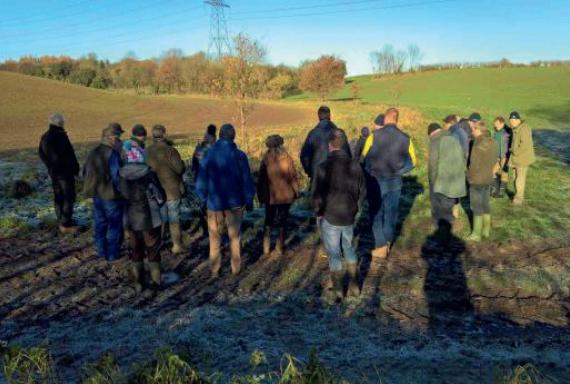
(INCORPORATING DERBYSHIRE LAND-BASED TRAINING AND ASSESSMENT COMMITTEE & OCKBROOK TRAINING SERVICES)

Registered Charity No 505745
NPTC City &GuildsCentre No 741174
Telephone or Text 01623 812641/07970415211
Email jackie.twilley@btinternet.com
Website www.ockbrooktraining.net & www.derbyshirelandskills.org.uk
■ Agriculture ■ Agricultural Engineering

■ AnimalStudies ■ Arboriculture&Tree Management ■ Ecology &Land Management

■ Equine Science &Management ■ FloralDesign
■ Garden Design ■ Horticulture ■ Landscape Architecture ■ SportsCoaching, Golf,Cricket, Football,Rugby,Basketball,Sports Massage, Strengthand Conditioning ■ Motorsports
■ Sportsturf ■ VeterinaryNursing ■ Zoology


PROVIDER OF QUALITY LANDBASED TRAINING SINCE 1975

CITY &GUILDS NPTC CERTIFICATES OF COMPETENCE AND LANTRA AWARDS


SAFE USE OF PESTICIDES
SAFE USE OF CHAINSAWS

TRANSPORTOFANIMALS
TRACTOR DRIVING, SHEEP DIPS, VETERINARY MEDICINES, FORKLIFT TRUCK &TELESCOPIC HANDLER, ATV’S. BRUSHCUTTERS/TRIMMERS, BRUSHWOOD CHIPPERS, MOWERS, MOLE CONTROL AND MANY MORE

AGRICULTURAL &BUSINESS MANAGEMENT CONSERVATION
LEGISLATION AND TECHNICAL SUBJECTS
Enterprise Groups for Arable Crops and Vegetables also available

FOR FURTHER INFORMATION CONTACT
JACKIE TWILLEYREGISTERED WITH LANTRA, CITY &GUILDS, UK RURAL SKILLS, and MEMBERS OF C.D.S. TRAINING
Iknow health and safety isn’t the most riveting of topics for anyone, often relating to a telling-of or a lecture, but with the rate of fatal injuries in agriculture 21 times higher than the all-industries average, it is undeniably something that needs addressing.
We have all been there, caught up in the moment thinking “If I do not do this in time”, or “I have not got time for that”, worrying the whole farming business will collapse. And believe me, I get that. Crops do not drill themselves, and there is not a second to spare when the unpredictable weather forecast is playing you like a fddle.
So how is it that if agriculture is the industry that has the most fatal injuries, and has been for decades, nothing has changed? Well, I think we all know exactly why.
As farmers, we are stubbornly independent and proud (as we absolutely should be). We really are the jack of all trades. We are in that tractor bailing up straw, we are in the

Student & Young Farmer Ambassador Darcy Johnson explains why it is so important to slow down and take the time to ensure your safety and to remember that we are not invincible
cherry picker fixing that pipe or helping grandma pick the out-of-reach plums, we are in that shed with that calving heifer, we are in that workshop welding that gate. We are, and we do, everything that the farm asks of us because we are driven, determined and committed. We are downright invincible.
But everyone feels invincible until something goes wrong.
For us on the farm back home, this foreign and outlandish concept of not being invincible became all too apparent in January 2019, when my dad, Rob, suddenly became paralysed.
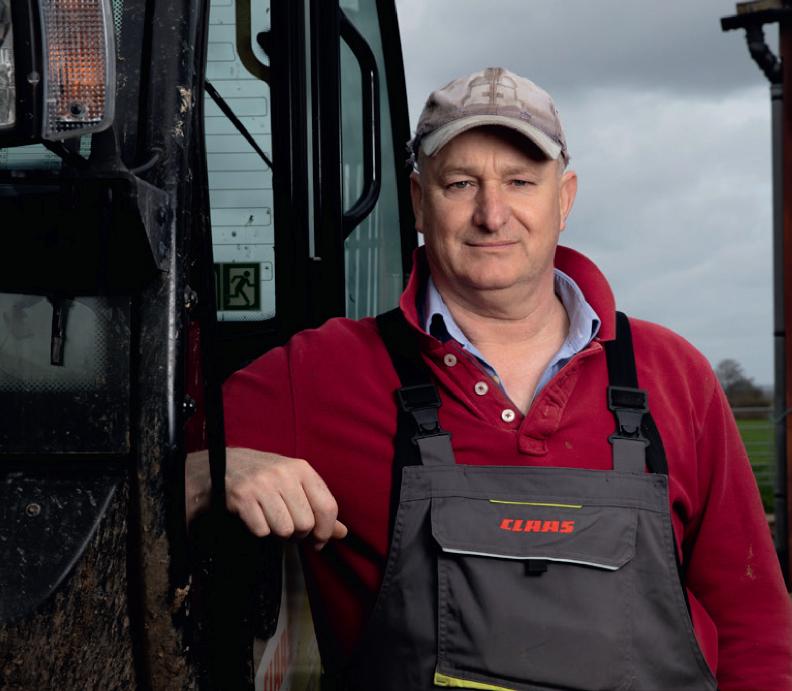
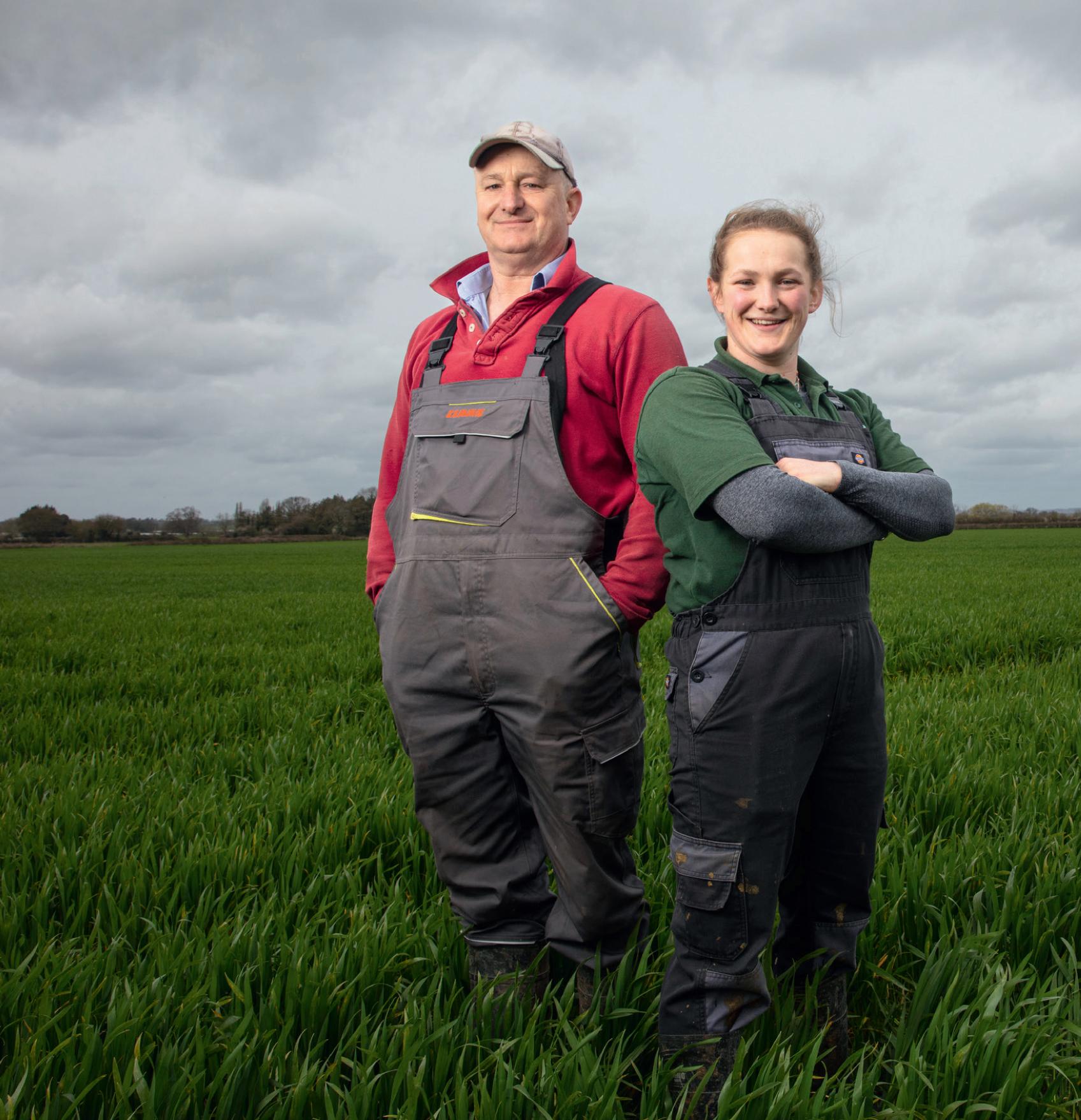
Carrying out the weekly Monday morning routine of clearing the alleyways out for the cattle, the corner of the bucket caught the metal stanchion of the shed. Even at low speed, the combination of the classic bouncy seat and inherent curve of the Claas Scorpion windscreen resulted in the launch of my father from the seat, and collision with the glass above him –apparently called a bullseye.
I was in sixth form. Mum was at work. My sister was travelling the east coast of Australia. An invincible man found himself utterly helpless – paralysed and unable to reach his mobile phone in his top pocket. Not a soul would be wondering where he was, perhaps until mum and I returned home that evening.
My father and my family count our blessings for Grampy turning up that day out of the blue. Harmlessly, just wanting to get out of the house, he clambered into the Land Rover to scout about the farm and see what was growing and if the snowdrops had started to flower under the hedges – little did he know what he would
It was just a routine winter job in early January 2019. A job that I had done hundreds of times before, but on this occasion it did not end well.
I still cannot believe what happened to me at such a low speed. I guess I was just unlucky that day.
find, but thank goodness he did. The emergency services dealt with the rest, and for us, the hour-and-a-half trip to Southmead Hospital ICU in Bristol became all too familiar. The good nature of our family, friends and neighbours shone through with support to keep the farm operating and the family from crumbling. After six months of intensive physio,
training, and time to heal; alongside his stubbornly independent and proud self, having been told he may never walk again, he did. In less than a year he was back working on the farm, but will forever be living with the lasting effects of his spinal cord injury. Sometimes I wonder where our family and the farm we love so much would be if the odds had not been so in our favour, and I can feel a lump in my throat just thinking about it.
I can almost guarantee some of you readers have been clearing out your cattle before and scraped a little too close to the wall, or in fact been in any scenario where you’ve come away thinking to yourself: ‘that was lucky’.
During the three months that followed, in hospital, I was really fortunate to have so many visitors from all walks of life. They were a massive help to me as, not being able to move initially from the neck down, time did drag quite a bit.
I was surprised by how many of my friends involved in agriculture could tell me that they had similar experiences in telehandlers but with less serious outcomes. My response to everyone is to always wear your lap belt.
I obviously wear my lap belt now and it was not long before it just became second nature to click it on. So my advice to anyone reading this is: give it a go and I am sure it would become second nature for you too, and may help you avoid a lengthy stay in hospital – or worse!


You cannot live your life worried about what could or could not happen, but you can take a minute to flip the coin and appreciate how much you mean to your parents, your kids, your siblings, your best mate – because I can guarantee you mean a lot more to them than you think.
So when you are next out on the farm, take that extra second to put your seatbelt on, turn off that engine, pick up the phone if you are feeling low, and make an effort to let someone know where you are and what you are up to, because yes, you are brilliant but you are not invincible, and those few seconds might just save your life.
“everyone feels invincible until something goes wrong”




























































































































































































































































































































































































































































































































































































































































































































































































































































































































































































































































































MAY
7 – 8 May
Northern Shooting Show
Panshanger Park, Hertford
Tickets: from £20/day northernshootingshow.co.uk
13 May
Ayr County Show
Ayr Racecourse, Ayrshire
Tickets: from £12 ayrcountyshow.co.uk
24 May
Harper Adams Summer Ball
Harper Adams, Newport
Tickets: TBA harpersu.com
26 May
Royal Agricultural University May Ball
Royal Agricultural University, Cirencester
Tickets: £95 standard/£140 VIP eventbrite.co.uk/o/rausu-31088966999
31 May – 1 June
Stafordshire County Show
Stafordshire County Showground, Staford
Tickets: £18 stafscountyshowground.co.uk
JUNE
8 – 10 June
Royal Cornwall Show
The Royal Cornwall Events Centre, Wadebridge
Tickets: £22/day
royalcornwallshow.org/the-show
8 – 11 June
Download Festival
Donington Park, East Midlands
Tickets: £110/day
downloadfestival.co.uk
9 – 11 June
Kite Festival
Kirtlington Park, Oxfordshire
Tickets: £59/day, £154/weekend kitefestival.co.uk
11 June
LEAF Open Farm Sunday
Farms across the UK
Tickets: Free farmsunday.org
21 – 25 June
Glastonbury Festival
Worthy Farm, Glastonbury
Tickets: £340/weekend glastonburyfestivals.co.uk
28 – 29 June
Royal Norfolk Show
Norfolk Showground, Norwich
Tickets: £27.50/day rnaa.ticketsrv.co.uk/events
JULY
7 – 9 July
Wireless Festival
Finsbury Park, London
21 - 25 June
Glastonbury Festival
24 – 27 July
Royal Welsh Show
Royal Welsh Showground, Llandrindod Wells
Tickets: £28/day
rwas.wales/whats-on/royal-welshshow-2023
AUGUST
9 – 12 August
Boomtown Fair Festival
Matterley Estate, Winchester
Tickets: from £90/day, £240/weekend wirelessfestival.co.uk
11 – 14 July
Great Yorkshire Show
Great Yorkshire Showground, Harrogate
Tickets: £32/day greatyorkshireshow.co.uk
Tickets: £315/weekend www.boomtownfair.co.uk
9 – 12 August
Boardmasters Festival
Newquay, Cornwall
Tickets: from £94.50/day boardmasters.com

9 - 12 August Boardmasters Festival

11 - 14
July
Great Yorkshire Show
SEPTEMBER
8 September
Russell Howard London Palladium, London
Tickets: £35.30 seetickets.com
23 September Slowthai
O2 Academy, Birmingham
10 – 13 August
Longines Global Champions Tour of London
Royal Hospital Chelsea, London
Tickets: TBA shop.ticketing.cm.com/lgct-london
18 August
Sam Ryder Singleton Park, Swansea
Tickets: from £35 www.skiddle.com
25 – 27 August
Reading and Leeds Festivals Richfeld Avenue, Reading/Bramham Park
Tickets: £101.20/day, £265/weekend readingandleedsfestival.com

31 Aug – 3 September
End of the Road Festival
Larmer Tree Gardens, Wiltshire
Tickets: £235/weekend endoftheroadfestival.com
31 Aug – 3 September
Land Rover Burghley Horse Trials Burghley House, Lincolnshire

Tickets: TBC burghley-horse.co.uk
Tickets: £35.19 dice.fm
31 August
Land Rover Burghley Horse Trials
13 – 14 June
Cereals 2023
Thoresby Estate, Nottinghamshire
Tickets: Free for NFU Members nfuonline.com/cereals
Already a staple in the agronomist’s diary, Cereals 2023 is set to be the most successful one yet. With 17,000 farmers and 400 exhibitors expected to attend, there’ll be something for everyone, no matter what your crop, from networking to seminar programmes. If you just want to see the shiniest pieces of tech, Cereals 2023 has got you covered too, with more than 200 live demonstrations across both days. A team of expert NFU ofceholders, staf and NFU Mutual advisers will be located on stand 223, ready to advise and update members on key arable matters.
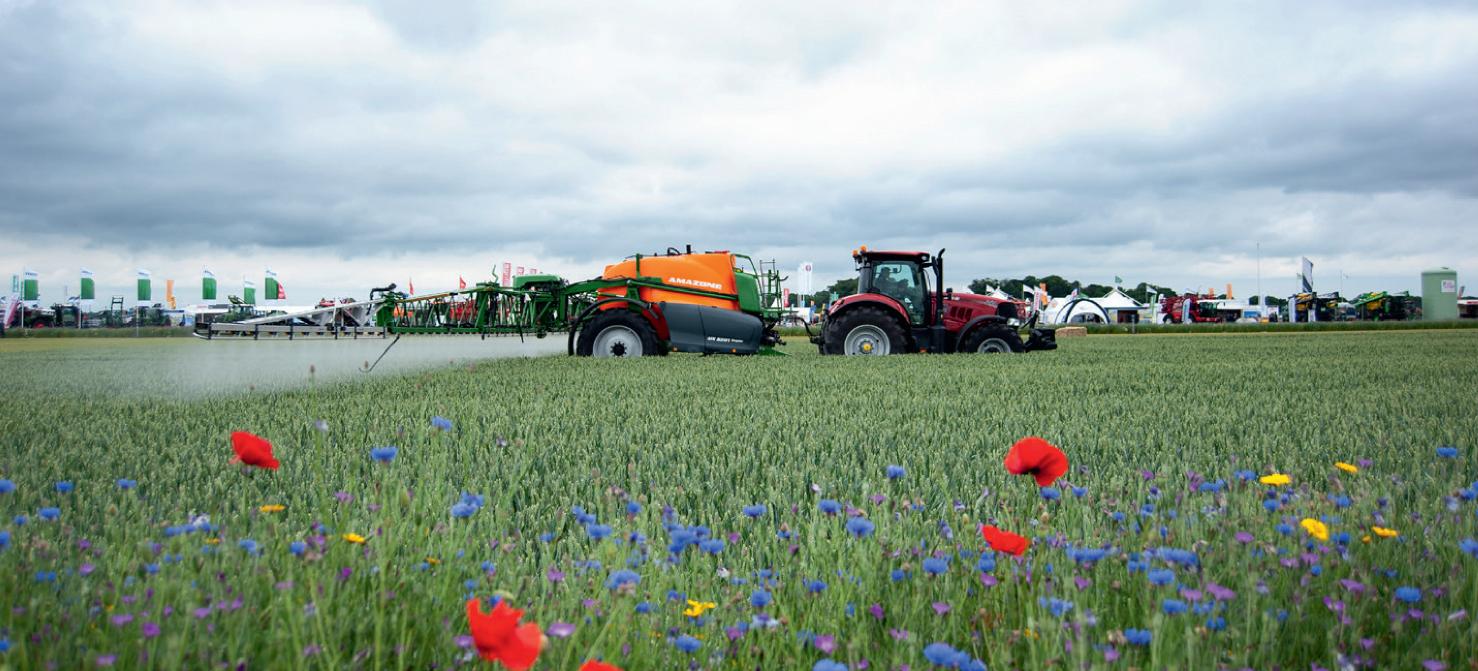






Agriculture




Degrees




•Foundation Degree in Sustainable Agriculturewith Dair yHerdManagement
•Foundation Degree in Sustainable Agriculturewith Livestock Management
•Foundation Degree in Sustainable Agriculturewith Crop Management
•BSc (Hons) Sustainable AgricultureTop-up








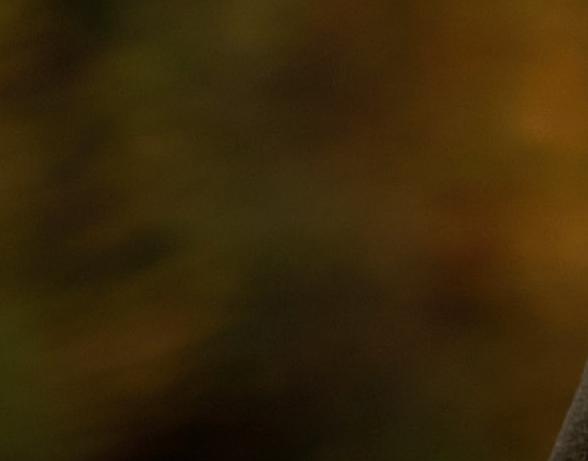


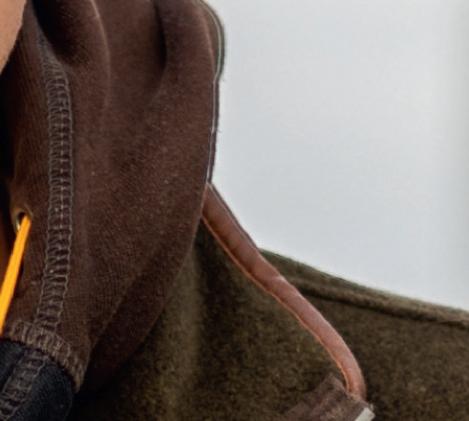


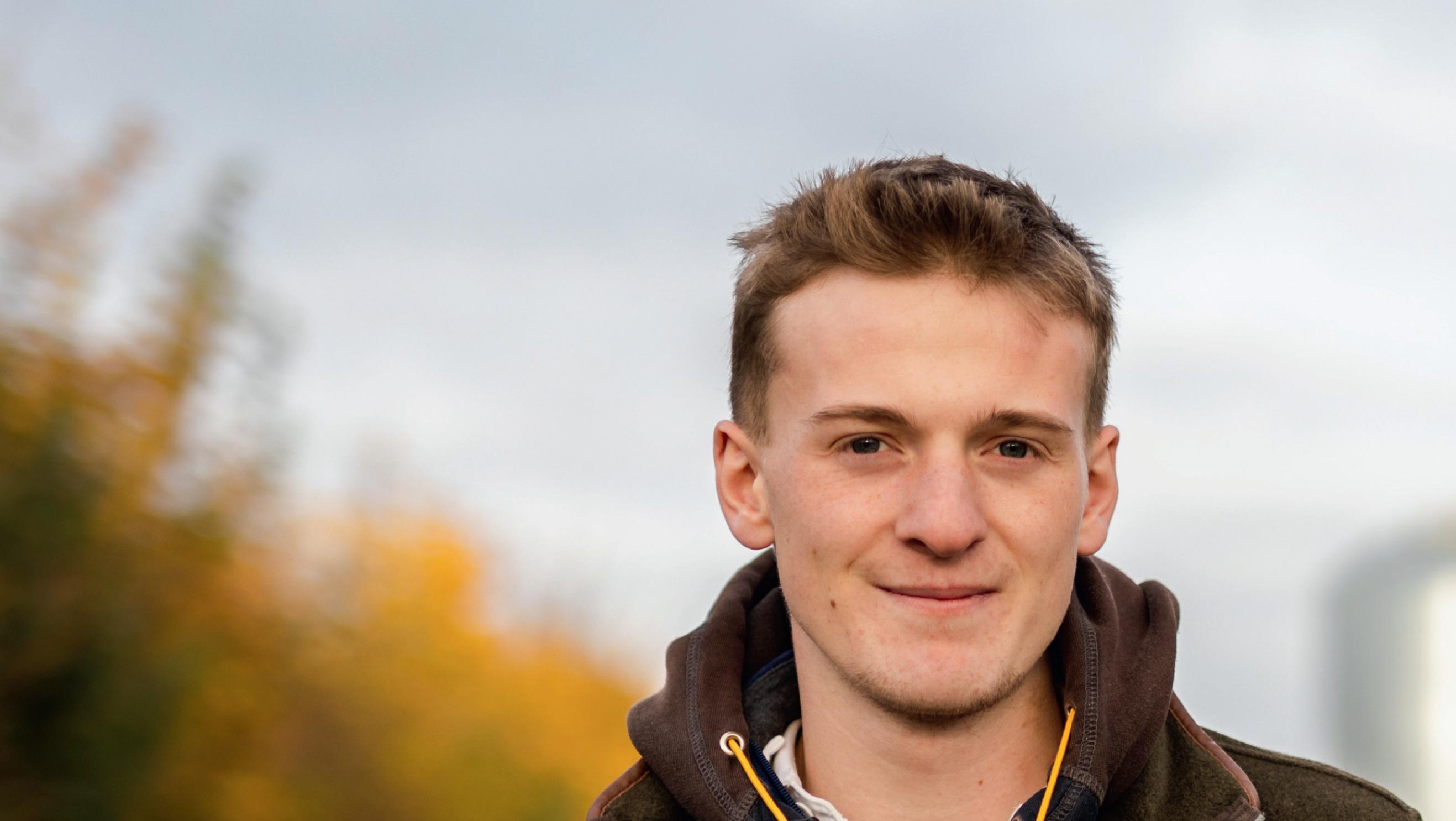
www.ucreaseheath.ac.uk/agriculture
Open Days 22/23


Saturday15October
Saturday12November
Saturday11Februar y







Saturday10June
www.ucreaseheath.ac.uk/open-days
























Afourth-generation sheep farmer, Kate was studying for her Masters in Sustainable Food and Agricultural Policy when she was asked by her professor if rope could be made out of wool. It was this simple question that sparked her natural curiosity and set her on the path that would eventually lead to the launch of Sustainable Rope Ltd.
Today, the company produces rope, fabric and other products made with 100% traceable British wool that is sourced from the British Wool Auction. These include dog leads, sheep halters, and horse lead reins. The wool rope offers an alternative to traditional plastic rope, reducing micro plastic pollution, and 18 months on from the company’s launch, is being used in trials to re-populate the seas around Britain with kelp and to replace plastic rope to grow seaweed.
What’s more, the company’s fabric is being used in the permaculture industry to manage the invasion of foreign species and seeding of areas of unstable land.

Recently named as one of the 50 winners of this year’s Women in Innovation Awards, run by Innovate UK and UK Research and Innovation (UKRI), Kate is passionate about supporting British sheep farmers. She said not only does sourcing all of her wool through the Auction, where graders take about four years to learn their skill, give her both assurance and insurance, it also allows her to support all 35,000 sheep farmers as opposed to just one if she were to buy direct from the farm gate.
So what tips does she have for young people looking to diversify?
“It’s really important to take people with you and to believe in what you’re doing,” she said. “Make sure you’ve done lots of homework and keep doing your homework. Research is so important.”
And Rome wasn’t built in a day. “Don’t be in a rush to do it. If people say it’s not


a good idea, that means you need more conversations about it, it doesn’t mean that it’s never going to happen.
“The best way to convince people about diversification, especially on a farm because it’s a big asset, is to take small steps, evidence to those people you care about that you want to work with them and that you’re really focused on what you’re doing.”
or as few as you like. Find people who are good at listening and that you like listening to. Good mentors are not all about their experience, allocated mentors rarely work in my experience.”
those people you care
She advises creating relationships with all the people that have a vested interest in your success, adding: “They’re going to have high expectations but those organisations, when they go ‘okay, this is going to work, this is how we’re going to do it’, then you will fly.”
Collaborating with stakeholders and organisations is another suggestion, with Kate pointing to Defra and Innovate UK. “Use mentors, have as many
Kate’s family has diversified the farm many times over the years and has always been on a diversification journey.
“You never do it once, it’s a constant thing. Diversification is almost a part of your business plan nowadays. It’s a strategy you should always have in your business plan, but this is really different, I don’t think I’ve ever had something I’ve had this much belief in before.”
Instagram queen Zoë Colville, otherwise known as @thechiefshepherdess, chats to Beth Wright about her move from London salons to shepherdess and, now, published author
 John Cottle
John Cottle
First-generation farmer Zoë and her partner Chris rent land across Kent, farming sheep, cattle, and pygmy goats. The couple started with 32 pregnant ewes and now lamb some 500 breeding ewes over 100 acres near Maidstone.

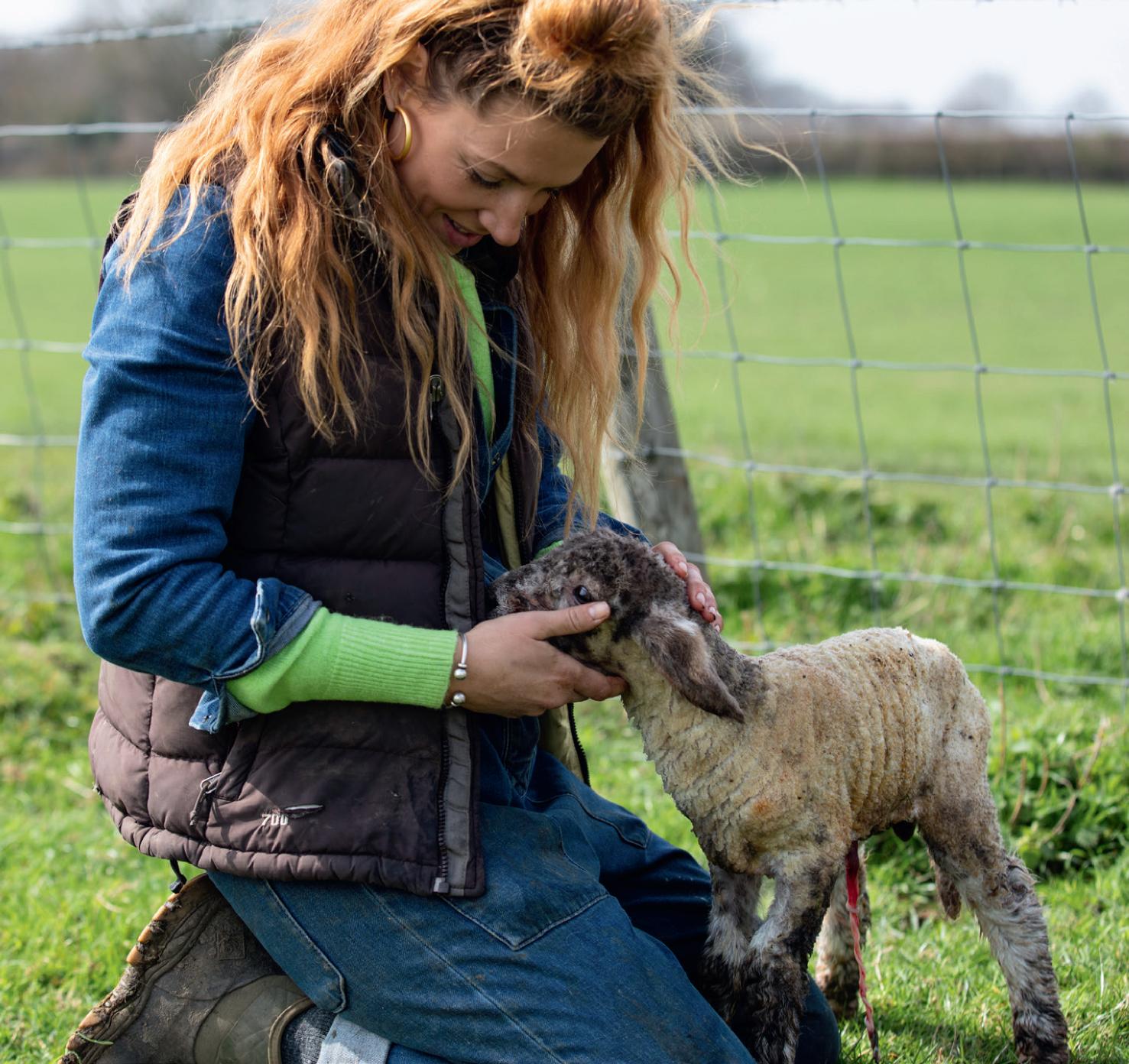
“It’s not been very conventional, but we’ve managed to make it work,” Zoë told Student Farmer, ahead of the launch of her book, The Chief Shepherdess: Lessons in Life, Love and Farming.
Having never considered a career in farming, Zoë has since learned to butcher by watching videos on YouTube during one of the Covid lockdowns. The couple now sell their meat online via their shop, The Little Farm Fridge.
“We were staying in a caravan on the farm during lambing and we were brainstorming and it got to the point we were like, ‘it’s now or never, we need to strike while the iron is hot’,” she said. “So we took out a loan, went to our landlady and said ‘can we put a unit in’, brought a second-hand mobile ofce and decked it all out with the hygiene boards and got all of our certifcations.
“Chris and I aren’t scared to have a go at things because, at the end of the day, what are you going to lose, money? I know money is very important, especially when you don’t have it, but no-one is going to die. I think, because we’re dealing with life and death all the time on the farm, you’re actually not scared of failing because if no-
one’s going to die when you fail it’s not as bad as situations you have been in.”
After Chris brought the frst ewes, Zoë began spending weekends and holidays in Kent with Chris, who spent some of his childhood on a farm but was working as a plumber when the pair met. But she said it was the passing of her father that made her embrace farming fully.
“Farming became real, it balanced me out,” she explained. “I felt really heavy after dad died. It was a sadness I’d never had before but getting into a routine where
you get up when the sun comes up and fnish work when it goes dark, it really it sorted me out.”
While she acknowledges farming may appear like a strange choice for someone who is grieving – threaded through as it is with death – she said: “The thing with farming is death and sadness is always balanced out with new life and growth and beautiful sunrises, whereas in human life it’s hard to fnd those things. They don’t stare at you straight in the face.”
As to how her shepherdess life contrasts to the salon, the biggest diference is being unable to plan ahead.
“My old life was literally planned to within an inch of its life,” she said, adding her appointments would be booked in weeks in advance with her only stress being turning clients around on time.
The change was a lot to get used to at frst. “It was quite a hard transition. I had three diaries and it used to drive Chris crazy because I’d be like, ‘what are we doing tomorrow’ and he’d be like, ‘this, this and this but it might change for this and this’ and I couldn’t understand. It used to drive him mental.”
As with any new career, the transition has had its ups and downs.
Probably the most difcult to deal with is the lack of control over the weather. “It’s when things are completely out of your control and you have to try and claw back,” she said, using the 2020 drought as an example. “We had to sell about 300 of our breeding ewes during that because we just didn’t have the grass and that cut really deep because it wasn’t anything that we’d done. That’s probably the hardest thing, being under Mother Nature’s thumb.”
Among the highs, she laughed, is





























surviving in a functional relationship with Chris. “It’s not a normal business we’re running, it’s high stress and intense 365 days a year. The fact we still go to bed and don’t want to rip each other’s throats out, that’s a real high for me.”
There’s also the growth from year to year: “The first year I lambed I wasn’t comfortable skinning a lamb to adopt it on to another one, whereas the year after I found the confidence to do it.”


For anyone new to or wanting to join the industry, Zoë said be sure before committing to it.
“There are so many opportunities now to try before you buy. We’re at a time where if you type in ‘shepherdess’ on Instagram there are 100 accounts you can contact,” she said.

“I feel passionately that young people now have every opportunity, and they should utilise it to make sure it’s definitely what they want to do.”
She added we’re at a “really exciting time for farming”, pointing to Farmer Will appearing on Love Island and the industry gathering momentum on social media.
“Growing up, the only thing I knew about farming was foot and mouth disease, bird flu and swine flu. But now if someone’s farming video is coming up in some 15-year-old’s feed full of Kylie Jenner and lip plumpers, that’s amazing.

“Nowadays, you don’t have to have a dad that works on a dairy farm or a grandad that’s a pig farmer. You don’t need to have those things now and it’s really exciting.”
Another must is a sense of humour. “You will not survive without one,” Zoë said, adding it needs to be a bit of a dark one at times. “You have to be able to laugh
at yourself. Not at the situation, because some of them are horrendous, but you have to be able to see the light in some really dark situations.”
It’s the toll farming can take on your mental health that makes Zoë reiterate the importance of being sure this is the industry for you before you commit.
She explained the darkness of long winters, bad weather, and financial stresses can be drowning, adding mental health is a “huge thing”.
“I feel like I’ve lost loads of friends because I can’t keep up the friendship because I’m so tired, and that can be quite isolating. I think that’s why I enjoy and kept up the social media so much, because
I’ve gone from being surrounded by girls 24/7 and having really deep, meaningful conversations and friendships to it literally being me and Chris all day every day.
“That’s why you have to be so certain before you fully dive into a career in farming,” she said.
With the titles of farmer, butcher, and now published author under her belt, Zoë hopes to buy or rent a farm in the future where she can offer open days to anyone interested in getting into farming and to primary schools.
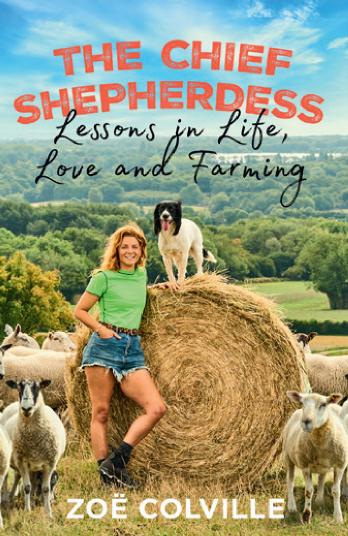
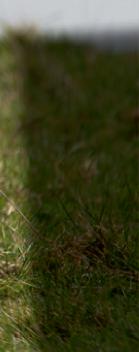
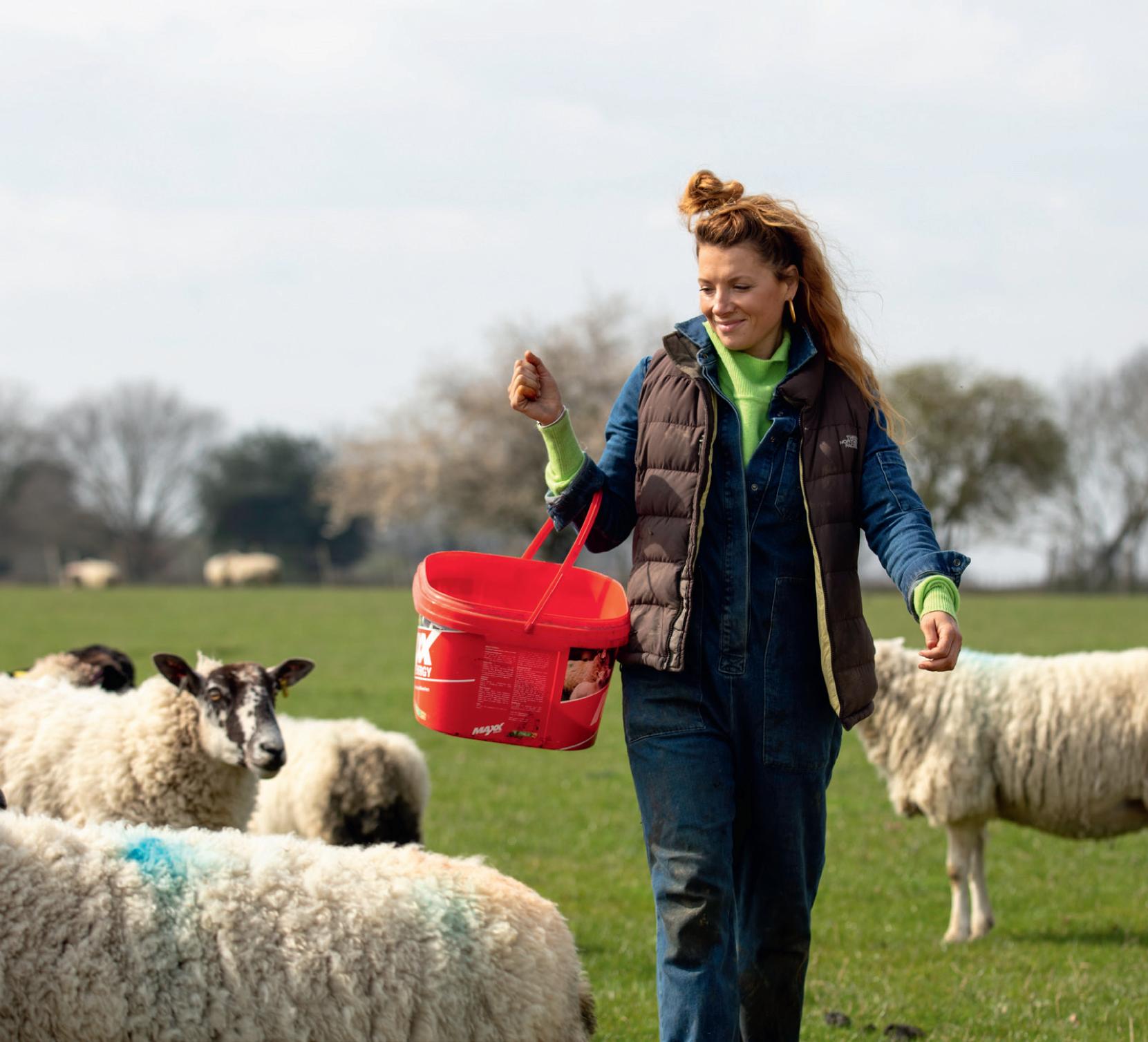
“That’s what I really want to do. I love kids and love working with kids and would love to be able to offer that.”
Also on the to-do list is to turn The Little Farm Fridge into a collective, offering milk, cream and cheese from local dairy farmers.
“Initially, we were worried people wouldn’t want to buy meat from the field in front of their house but it’s not the case at all. People want to be connected and know the story behind it and learn where it came from and I’d love to open that up a bit more.”



We take a look at what’s happened in the farming news since our last edition and cut it down into bite-sized chunks...
Carlsberg has said it will use 100% ‘regenerative’ barley for its UK beer brands within the next decade, as part of a sustainability push across the global brewing giant. Louise, who works as a farming consultant and agronomist at Ceres Rural, reports…
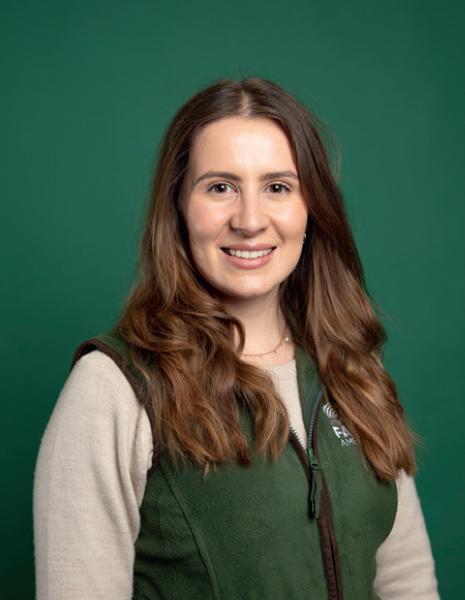

In the UK, Carlsberg Marston’s Brewing Company (CMBC) has contracted the first 23 farmers to grow approximately 7,000 tonnes of barley to new regenerative standards. Regenerative farming aims to regenerate the soil using a number of principles including providing soil armour, minimising mechanical soil disturbance, increasing plant diversity, maintaining living roots in the soil and integrating grazing livestock into arable systems.
Ceres Rural has been helping to develop these growing protocols, which include using no-till or min-till establishment methods and species-rich cover crops preceding the spring barley crops. Farmers must also grow a minimum of three crops within any five years of the cropping rotation, providing diversity which, in turn, increases the diversity of soil biology. Pesticide and fertiliser use is optimised, and crop demand is assessed prior to application.
I am particularly interested in regenerative agriculture, and I think this is good news for farmers who are already adopting these principles within their farming system. The majority of farmers I know have started following these principles because they want to improve the health of their soils, and some have recently started to change the way they farm because it makes farming exciting and interesting again. The farmer-to-
farmer knowledge sharing within regenerative agriculture is something that I’ve not experienced before. Farmers have not jumped into this new way of farming to follow more lucrative contracts, but instead from a place of wanting to improve their farm, soil and the long-term sustainability of their businesses.
Changing your farming system from a conventional to a regenerative system doesn’t happen overnight. It requires learning a whole new method of farming, taking risks and investing in new machinery. Farmers must get the value from the time and money invested into changing their farming system. The same goes for the value of any carbon savings they make with the path to net zero. We need to ensure that farmers are being rewarded for farming more sustainably and cutting their carbon footprint, whether that be through the supply chain or the government.
For any farmers that are interested in these developing markets, I would first assess to what degree, and for how long, your farm has been following regenerative
principles. These systems often result in higher yields and profitability in the long run due to better soil health and lower fuel and labour costs. However, the journey to this point can involve a lot of trial-anderror and learning, such as trying different cover crops to see what works best for your farm. It can potentially result in lower yields in the short term.
I would encourage businesses that have been following and have ‘mastered’ these growing protocols for some time to enter these contracts. In the meantime, other businesses should continue to adopt these principles. The new Sustainable Farming Incentive standards also complement growers using regenerative practices, with a number of the standards including no insecticide and companion crop payments further rewarding farmers.
“Farmers must get the value from the time and money invested into changing their farming system. The same goes for the value of any carbon savings they make with the path to net zero”
NFU Next Gen Forum chair
Eveey Hunter and vice-chair Liv Richardson travelled to Dublin in January for the Council of European Young Farmers (CEJA) conference on smart farming. Hosted in collaboration with the Irish young farmers association, Macra na Feirme, the conference included an introduction to the CEJA policy paper on ‘Smart Farmers for Smart Farming’ by CEJA President and young farmer from Tuscany, Diana Lenzi. Eveey and Liv welcomed the opportunity to provide input from the UK perspective, which will be incorporated into the paper.
“Young farmers are integral to the future of the industry. In 10 years’ time, more than half of farmers in the EU will be over 65 – a trend all too similar here in the UK. We unanimously agreed the need to inspire and encourage young people across the industry. Hearing experiences on how other countries are doing this was hugely inspiring,” the pair said.
Eveey and Liv also visited Dowth Farm in County Meath, which claims to be the world’s first carbon neutral suckler beef farm, and a dairy farm near Kilsallaghan which has recently installed a state-of-the-art Dairymaster parlour.

Reflecting on their visit to the Emerald Isle, the pair said: “Our sector is characterised by enthusiastic and engaged young people. However, young farmers across the continent are at the coalface of numerous challenges including inflationary pressures, succession and access to finance. The conference demonstrated that we need more enthusiastic and engaged young people in agriculture, who are not only supported financially, but also in terms of skills and education. Now we are back home, we look forward to our continued engagement with colleagues in Europe!”
The Royal Agricultural University (RAU) has announced plans for a major expansion on 29 acres of land at its Cirencester campus. Its ‘Innovation Village’ is described as a blueprint for sustainable, carbon-neutral rural living. The university hopes it will become home to a community of agri-tech entrepreneurs, policymakers and researchers ‘committed to addressing the major challenges that we all face’. Vice-chancellor Professor Peter McCa ery outlined a “£100 million project centred on supporting food producers to develop new, innovative practices, while protecting land health and building resilience in rural communities”. The RAU believes the village could be worth around £25m to the regional economy within five years. It is working with the district and county councils, the GFirst Local Enterprise Partnership and the Department for International Trade. ‘Passivhaus’ experts Architype will provide the designs and a planning application is expected later in the year.











The National Federation of Young Farmers’ Clubs (NFYFC) has bounced back to more than double its membership, after a steep decline when the pandemic put paid to its events programmes and meetings.
If the trend continues, new chair and Devon young farmer Rosie Bennett is expected to lead 25,000 NFYFC members by August, supported by vice-chairs Drew Bailey, from Derbyshire, and James Nixey from Buckinghamshire.
That would see the much-loved organisation back to its pre-pandemic strength after a period in 2020 when, despite swiftly adapting to o er online events, some clubs’ futures were threatened by huge holes in their finances.

Young farmers’ clubs have been a staple of rural life for more than 100 years.
UK dairy giant Arla is calling on more young Brits to enter farming in the next decade to help the industry meet its carbon targets. New research commissioned by Arla into the career aspirations of Gen Z has revealed 32% want a job that plays a part in tackling climate change. But when asked about the role dairy farmers play in tackling the climate crisis, nearly half (45%) of 18-24-year-olds weren’t aware that today’s dairy farmers are working day in, day out towards lowering climate emissions. In fact, 67% of young people don’t know that farmers spend most of their time using technology to gather and analyse data, working to improve the sustainability of their farms, and taking a data-led approach to the work they do. Arla said it understands it needs to attract the next generation of farmers to help deliver future changes and plans to engage the government in this mission.





Are you a sugar beet grower? Do you want to learn more about the inner workings of the UK sugar industry? Recruitment for the 2023/24 Sugar Industry Programme will be opening this summer. Running from November 2023-March 2024, the programme consists of a range of visits covering the entirety of the UK sugar supply chain – a fantastic opportunity for growers to learn more about the industry and develop their professional skills. Keep your eye on NFU Sugar Twitter and NFUOnline for the opening of applications, or email sam.williamson@nfu.org.uk to register your interest.












Farming is such a hands-on job, so we are all usually pretty active. But taking time out for a walk around the countryside can improve your mental health. It also serves as a reminder of why you’re farming in the frst place.
Ambassador Hannah

It’s easy to forget to take a break and with a to-do list that’s neverending, taking breaks seem to fall near the bottom. Try taking regular breaks, even if they’re only short, to get away from your work and have a chat with someone, whether that’s round the kitchen table, a FaceTime with a friend or a quick text exchange.
On the topic of to-do lists, take some time to keep a list of everything you need to do – on and of the farm.
Prioritising these diferent tasks means you can manage your time better and make time for yourself.
Cuthbert
The agricultural industry is undoubtedly the most resilient out there. Whether it be summers like we saw last year, supply chain issues, soaring energy bills or uncertainty as BPS reduces, farmers are constantly battling the various factors that efect their livelihood and businesses.
With long hours, fnancial pressure and often isolated workplaces, farmers are more susceptible to their mental health being under strain.
While a problem shared is often a problem halved, the burden that people carry can afect their mental health signifcantly. In recent years, there has been a lot more emphasis on checking in with friends and family and encouraging discussions about industry struggles.
I always fnd it useful hearing about tips to help my own mental health or help support a loved one, so even if you’re not struggling yourself, they may help get the conversation started if you think someone is struggling. These tips are small changes but I have found they can have a positive impact on your mental health.
Podcasts have taken the world, and the farming world, by storm. When you’re sat in your tractor cab until well into the night or milking in the parlour in the early hours of the morning, it serves as a bit of company and there are podcasts for all interests.
We all know the good quality food farmers produce and when you’re in the industry we certainly don’t take it for granted. Ensure you’re getting your veggies in (when in season of course). Looking after your physical health in turn looks after your mental health.
While we’re entering a busy time in the farming calendar, making time for yourself and your loved ones is so important. A problem shared is often a problem halved and the more open we are about our mental health, the less stigma is attached. We can all help each other, especially in an industry that’s often a lonely one.

NFU Student & Young Farmer membership is free to students and YFC members. It allows you to have a say and to contribute towards the future of agriculture, and you will benefit from access to experts in policy, food and farming, plus bonus perks!


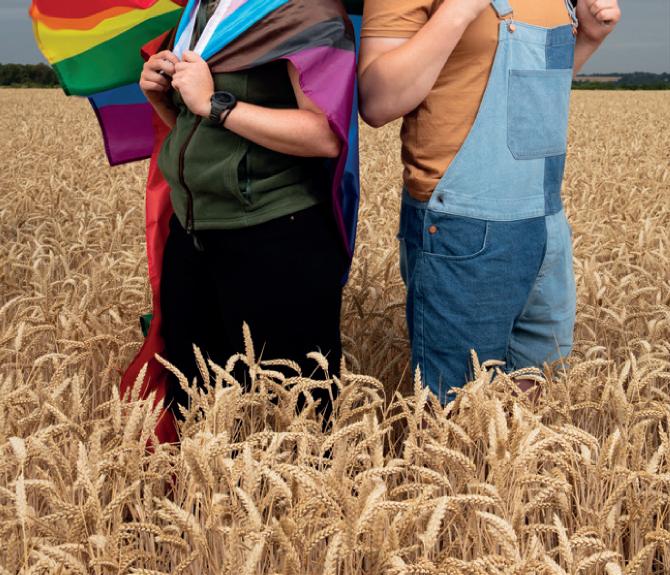
Join the largest and most influential farming association and receive:

• Student Farmer magazine and British Farmer & Grower or Farming Wales magazine delivered to your door

• The latest news and briefings from our policy experts in NFU Bulletin and sector-specific and regional e-newsletters



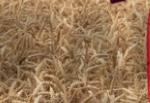





• Discounted member rates to attend NFU Conference and other events

• Access to member-only content on NFUonline and the NFU App with a unique login
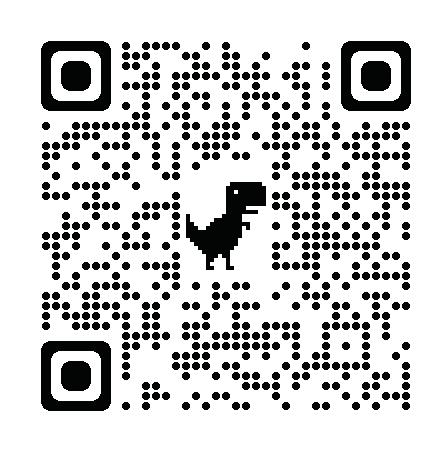

• 10% saving on B+E Trailer Training
• Welfare of Animals in Transport test for £35 (+VAT)

• 15% o airport parking and hotels with APH







• Savings on Dickies Workwear online











• Huge savings on Merlin Entertainment (Alton Towers, Thorpe Park and more)



• Save up to 25% on ATV helmets and safety clothing from Spada.














































Jeep UK is delighted to ofer exclusivediscounts across the Jeep range as wellasaccess to exclusivedeals on selected new Fiat,Alfa Romeo, Abarth and Fiat Professional vehicles to membersofthe National Farmers’ Union with the FCA Privilege Program.



Ofering awide choiceofmodels to suit anybudget,the scheme provides arange of fnanceoptions to makeyour new vehicle purchase even moreafordable.


Formoreinformation call 01753 519548 or email groupsales@stellantis.com







Jeep® Compass 4xePHEV:CO2 emissions combined (g /km): 47-43; Combined fuel consumption (l /100km) 2.0-1.9; Power consumption (kWh / 100km): 16.3.**

** These fgures wereobtained after the battery had been fully charged. The Compass 4xeisa plug-in hybrid vehicle requiring mains electricity forcharging. Fuel consumption and CO2 fgures areprovidedfor comparativepurposes onlyand maynot refect real life driving results, which will depend upon anumber of factorsincluding the accessories ftted (post-registration), variations in weather,driving styles and vehicle load. Onlycomparefuel consumption and CO2 fgures with other cars tested to the same technical procedure.
*All vehicles ofered aresubject to availability.The Privilege Program prices include VAT, road fund licence, frst registration fee, delivery and number plates. Fiat Chrysler Automobiles UK Ltd reserves the right to alter,amend or withdraw prices and oferswithout notice. The Privilege oferscannotbeused in conjunction with anyother ofers or incentives, including retail andPrivilege Program Scheme consumer incentives.
